MPA MEMBERS STACK UP AWARDS


















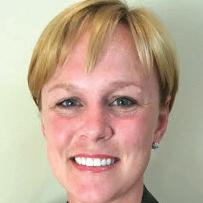
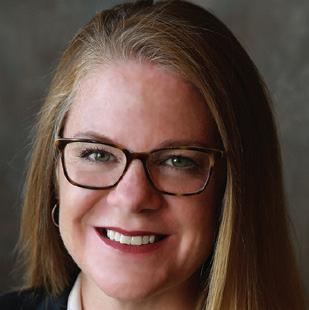

MPF TEES OFF
Don't take a mulligan on participating in the annual MPF Golf Classic! (p. 11)
OUTSTANDING ACE
(p. 18)
MSCP FOCUS
2023 Apr./May/June | Vol. 61, Issue 2 MichiganPharmacists.org THE OFFICIAL JOURNAL OF THE MICHIGAN PHARMACISTS ASSOCIATION MICHIGAN
the hormonal
Pharmacists can ease
contraception access problem. (p. 24)
First fully in-person ACE since 2020 entertains attendees.



2 MichiganPharmacists.org 3 President’s Platform MPA President Hope Broxterman outlines numerous opportunities ahead for pharmacists.
ISSUE 14 26 4 CEO Corner MPA members shine both at home and nationally during ACE, APhA meetings. 8 Student Focus Ferris State University student Jillian Merritt chronicles the challenging journey through pharmacy school during COVID-19. 22 From MSCP's President MSCP President Brooke Roe muses about phrases pharmacists can live by. 28 Legal Insights When should pharmacies consult a lawyer? Kim Sveska details some scenarios. 32 Wayne State Am Care Wayne State has new ambulatory care concentration for prospective pharmacists. CEO: Mark Glasper; EDITOR: Ryan Weiss; PUBLISHER: Bryan A. Freeman Michigan Pharmacist (ISSN 1081-6089) is the official journal of the Michigan Pharmacists Association, published four times a year at 408 Kalamazoo Plaza, Lansing, MI 48933. Publication Number: USPS-345-600. Phone: (517) 484-1466, Fax: (517) 484-4893 Website: www.MichiganPharmacists.org, E-mail: MPA@MichiganPharmacists.org, Advertising Information: Visit www.MichiganPharmacists.org/news-publications/advertising-opportunities or contact Bryan Freeman, MPA marketing and communications director, at (517) 377-0257 or BryanFreeman@MichiganPharmacists.org All opinions expressed in Michigan Pharmacist are not necessarily official positions or policies of the Association. Publication of an advertisement does not represent an endorsement. Michigan Pharmacist is subject to the standards established by the Association. Michigan Pharmacist is distributed as a regular membership service, paid for through allocation of membership dues. © Michigan Pharmacists Association, 2023 TRIDEMIC FEATURE LEGISLATIVE UPDATE MEMBERSHIP 10
IN THIS
ENDLESS OPPORTUNITIES
BY HOPE BROXTERMAN,
Earlier this year, we reflected and celebrated all the excellent things the pharmacy profession accomplished over the last year. As we continue shaping pharmacy’s future, motivational speaker Nick Vujicic tells us to “keep moving ahead because action creates momentum, which in turn creates unanticipated opportunities.” Opportunities! I love this word, because it holds promise, creates careers and moves us in new and unforeseen directions. For example, the exciting opportunity taking place to allow pharmacists to prescribe various treatments, ultimately allowing patients increased access to care. We have momentum for more opportunities!
In December 2022, the Mainstreaming Addiction Treatment (MAT) Act removed many barriers, such as the DEA’s “X-waiver,” which allows the opportunity for pharmacists in some states to prescribe buprenorphine, increasing access for patients with opioid use disorder.1 While prescribing buprenorphine is not currently a legislative bill for Michigan, it has opened the door to possibility.

In March 2022, the Equitable Community Access to Pharmacist Services (ECAPS) Act was introduced.2 This act would have allowed pharmacists to continue to be covered for services related to testing and vaccines for COVID-19 and influenza, as well as respiratory syncytial virus (RSV) and streptococcal pharyngitis (strep throat), followed by initiation of appropriate treatment. Although the ECAPS Act did not pass through the last Congress, the Michigan Pharmacists Association (MPA) is currently working toward test-to-treat legislation with the Michigan House Health Policy Committee.

I am excited for pharmacy’s ability to assist in treating patients with illnesses such as RSV, strep throat, etc. This effort frees up primary care physician offices, urgent cares and emergency departments to focus on optimizing management of chronic disease states and emergency conditions such as heart attacks and seizures.
The pandemic came with numerous challenges. It also brought opportunity. Not only did pharmacy step up to the plate to deliver vaccines, but it was also given the opportunity to prescribe and dispense COVID-19 treatment. We proved our value by ensuring patients had access to the care they needed. Building upon that momentum, MPA is working with legislators to allow pharmacists to prescribe hormonal contraceptive drugs.
The public health emergency declarations is set to end May 11, 2023, which means many current flexibilities – such as coverage for COVID-19 vaccines, tests and treatment; telehealth services; and liability immunity to administer medical countermeasures – will cease.

Fortunately, the Public Readiness and Emergency Preparedness (PREP) Act will not conclude until Oct. 1, 2024, allowing pharmacists and pharmacy interns to continue to administer COVID-19 immunizations to children between the ages of 3 and 18. Prior to COVID, pharmacy was able to vaccinate children if a collaborative practice agreement (CPA) was in place.3 Currently, our Governmental Affairs Committee (GAC) and MPA staff are working to ensure that when the PREP Act ends, pharmacy can still immunize children without a CPA. Think of all the kids we will be able to continue to ensure are appropriately immunized!
So, I ask you, what do you want the future of pharmacy to look like and will you lend a hand to help shape that future? This is as easy as participating in your local or regional association, getting involved in your local chamber or rotary, joining MPA’s Pharmacy Advocacy Response Team (PART), participating in MPA’s House of Delegates, or joining an MPA committee.
This summer, MPA will be sending a Membership Engagement survey allowing you the opportunity to signify your interest in serving on a committee and/or board, writing an article for a journal, providing a CE and other great opportunities. Collectively, our contributing efforts will help shape our future. Being involved is the best opportunity! Your questions are important so please ask how to get involved. Just contact MPA staff or myself. Our profession needs all of us involved. Paul Walker, American Society of Health-System Pharmacists president, said it best: “We are better together.”
References:
1. https://www.congress.gov/bill/117th-congress/housebill/7213?s=1&r=75. 3/14/23
2. https://www.congress.gov/bill/117th-congress/senate-bill/445 3/14/23
3. https://www.kff.org/coronavirus-covid-19/issue-brief/what-happenswhen-covid-19-emergency-declarations-end-implications-forcoverage-costs-and-access/. 2/5/23
2023 Apr./May/June | Vol. 61, Issue 2 3 — PRESIDENT’S PLATFORM —
Pharm.D.; president, Michigan Pharmacists Association
"Opportunities! I love this word, because it holds promise, creates careers, moves us in new and unforeseen directions."
MPA SHINES AT STATE & NATIONAL LEVELS
Very proud of the Michigan Pharmacists Association (MPA), our members and staff and the excellence we have achieved together. In February, we held our extremely successful Annual Convention and Exposition (ACE) in Detroit and I just returned from the American Pharmacists Association (APhA) Annual Meeting and Exposition, held March 24-27 in Phoenix. While the two events are vastly different in terms of size, both offered opportunities for MPA to shine at home and on the national stage.
ACE Radiates Success
BY MARK GLASPER, chief executive officer, Michigan Pharmacists Association

We had 500-plus members and more than 700 total attendees at our first fully in-person ACE since 2020. Up to 15 continuing education hours were available, including two fantastic keynote presentations. For our Opening Keynote, I want to thank National Boards of Pharmacy Executive Director Al Carter and MPA Past President Charlie Mollien for an informative fireside chat on hot topics in pharmacy. It was also a reunion for both, as Mollien followed Carter at Walgreens earlier in their careers.
Our second keynote featured a panel of national pharmacy leaders who spoke on government affairs efforts at the national level, including MPA member and current interim CEO for APhA, Ilisa Bernstein. Joining Bernstein on the panel were Anne Cassity, senior vice president, federal and state government affairs, National Community Pharmacists Association; William Tighe, vice president, federal government affairs, National Association of Chain Drug Stores; and Tom Kraus, vice president government relations, American Society of Health-System Pharmacists. Anyone attending that panel discussion knows it could have continued for another hour!
ACE affords us the opportunity to honor members who distinguish themselves as recipients of MPA’s annual awards. Our list of award recipients is too long for this column, but I do want to call out Lisa Bade (Michigan Society of Community Pharmacists), who was recognized as our Pharmacist of the Year and Heidi Diez (Michigan Society of Health-System Pharmacists), who received the Bowl of Hygeia Award. Congratulations to all of our award recipients who are listed on pages 19-21 of this issue.
I do want to highlight one, additional honoree – Henry Yee, who was one of three 50-year members of MPA. I spoke and corresponded with Yee after ACE and he told me how honored he was to have mentored so many technicians during his 46-year career, including Rosalind Brewer, the current CEO of Walgreens. He had the opportunity to work with her at a Detroit-area Kmart when she would return home from her studies at Spelman College in Atlanta. What a great story!
Also, I can’t thank our 65 exhibitors and sponsors enough for their strong show of support at ACE. I want to especially recognize Walgreens and PSI Insurance Agency (Gold sponsors); CMP Pharma, CVS Health, Kroger Health, Lilly and Meijer (Silver sponsors); and Gvoke, Heron Therapeutics, Moderna and SpartanNash (Bronze sponsors). ACE is the premier pharmacy event in Michigan because of our corporate support!
Save the date now for the 2024 ACE Feb. 23-25 at the Marriott Renaissance Center in Detroit and the 2025 ACE April 11-13 at the Grand Traverse Resort in Traverse City!
Michigan in Spotlight at APhA
I couldn’t be more proud of our Michigan award recipients at the APhA Annual Meeting and Exposition in Phoenix. Karen Farris, from the University of Michigan, and MPA Director of Professional Development Farah Jalloul received national honors.

Farris was presented the Tyler Prize for Stimulation of Research, which is awarded every three years. The Tyler Prize "recognizes an individual(s) for encouraging research by peers, students, fellows, residents and others via publications or by directing research, serving

4 MichiganPharmacists.org
— CEO CORNER —
MPA CEO Mark Glasper catches up with 50-year MPA member Henry Yee at ACE.
Glasper and APhA Interim CEO Ilisa Berstein at the APhA Annual Meeting.
as a preceptor, or mentoring in any discipline of the pharmaceutical sciences.”
Jalloul was given the Hubert H. Humphrey Award, which is named after the former United States vice president and senator, who also was a pharmacist and a longtime APhA member. The Humphrey Award was established in 1978 "to recognize APhA members who have made major contributions in government and legislative service."
Congratulations to both for representing Michigan and MPA so well!
We had more than 70 MPA members and guests join us for the Michigan Reception. I would especially like to thank Bernstein, who took time from her busy schedule to attend our event. I also want to thank our cohosts for the evening: Ferris State University College of Pharmacy, University of Michigan College of Pharmacy and Wayne State University
Eugene Applebaum College of Pharmacy and Health Sciences. Representing MPA at the House of Delegates (HOD) were President Hope Broxterman, Past President Heather Rickle, Consultant and Specialty Pharmacists of Michigan (CSPM) President Matt McTaggart, MSCP Board member Brittany Stewart and Jalloul. There’s a tremendous amount of preparation that goes into serving as an APhA delegate, not counting the five-plus hours over two days of HOD sessions. I appreciate them representing Michigan and MPA as well!

If you’ve never had the opportunity to attend one of the national pharmacy associations’ annual meetings, I recommend doing so. It gives you a broad perspective of and appreciation for the pharmacy profession as a whole. Pick one that speaks to your professional needs and enjoy the experience. But don’t forget to attend ACE every year!





2023 Apr./May/June | Vol. 61, Issue 2 5 — CEO CORNER —
Award winners Karen Farris, middle, and Farah Jalloul, right, pose with Glasper at the APhA Annual Meeting.
The Michigan Delegation at the APhA Annual Meeting: Glasper, MPA Past President Heather Rickle, MPA President Hope Broxterman, CSPM President Matt McTaggart, MSCP board member Brittany Stewart and MPA Director of Professional Development Farah Jalloul.
Glasper and representatives from Lilly gather for a picture at ACE.
The Michigan Reception at the American Pharmacists Annual Meeting and Exposition.
Glasper poses for a picture with CVS representatives at ACE.
Glasper meets with Meijer representatives in the Exhibit Hall at ACE.
EVENTS CALENDAR

MPA, local association and national pharmacy organization events, as well as health observances, are included below. For the most up-to-date information, please visit our online calendar at MichiganPharmacists.org/eventscalendar
APRIL 2023
1-30
20
20
24
26-27
Saturday, Apr. 1 –
Sunday, Apr. 30 Alcohol Awareness Month Nationwide
Thursday, April 20
CSPM Board of Directors Meeting Virtual Only
Thursday, April 20
MPF Board of Trustees Meeting
Hybrid
Monday, April 24
MPA Executive Board Meeting Virtual Only
Wednesday April 26 –
Thursday, April 27
NCPA Congressional Fly-In Alexandria, Virginia In-Person Only
28
Friday, April 28
MSPT Board of Directors Meeting Virtual Only
Brian Horton
MAY 2023
1-31
Monday, May 1 –
Wednesday, May 31
Asthma and Allergy Awareness Month Nationwide
4
Thursday, May 4
MSHP Committee Day and Board of Directors Meeting In-Person, Okemos Event Center
15
23
29
Monday, May 15
MPA Executive Board Meeting Virtual Only
Tuesday, May 23 MSCP Board of Directors Meeting Virtual Only
Monday, May 29 MPA Offices Closed Memorial Day
JUNE 2023
8
21
27
Thursday, June 8
MSHP Board of Directors Meeting Virtual Only
Wednesday, June 21
MPF Golf Classic Eldorado Golf Course Mason, MI
Tuesday, June 27 National HIV Testing Day Nationwide
Please note: Some board and committee meetings may be subject to a change in format to virtual or in-person at the discretion of the members. Please check the MPA website or contact MPA@MichiganPharmacists.org for more information.
— BIOS AND MEMORIES —
Brian James Horton, 79, of St. Johns, passed away at home March 15, 2023. He was born Sept. 14, 1943, in Charlotte, the son of James and Leita (Welsh) Horton. Brian graduated from Lansing Sexton High School and went on to Ferris State College, graduating in 1967. He worked for the state of Michigan, the Michigan Pharmacists Association and Value Rx. He retired from American Associated Pharmacies in 2017. Growing up, he enjoyed stock car racing, working on American Muscle cars, hunting, fishing and spending time at the cottage in Interlochen.

Brian was preceded in death by his parents; his wife of 54 years, Barbara Horton; and siblings Susan DeForest, Larry Horton and Jeff Horton. He is survived by his daughter Kimberly Ann Horton of Morristown, New Jersey; sons Bradley (Michelle) Horton of Portage and Kevin Horton of St. Johns; grandchildren Carter and Carson; stepgrandchildren Kyle and Kasey (Seth); brother David (Marie) Horton; brother-in-law Brian DeForest; nephew Michael Horton; niece Michelle Rewis; and beloved cat Boots. For those desiring, memorial contributions may be made to North Eagle Cemetery Association or the Capital Area Humane Society. Online condolences may be shared at millsfuneral.com
ERIC ROATH, DIRECTOR OF GOVERNMENT AFFAIRS

The Michigan Pharmacists Association (MPA) is excited to welcome back Eric Roath to the organization as its new director of government affairs. Roath received his Doctor of Pharmacy degree from Ferris State University in 2012 and his Master of Business Administration from Texas A&M-Corpus Christi in 2017. He completed a PGY1 community pharmacy residency with PGPA Pharmacy and Ferris State University. He also served as MPA’s first Executive Fellow in 2013.
Roath has practiced in a variety of settings in his 10-year career. He is a past recipient of the MPA Distinguished New Pharmacist Practitioner Award and a member of the MPA Hall of Honor. Roath currently resides in Lansing with his wife and three children. If you would like to contact Roath, email eroath@ michiganpharmacists.org, or call (517) 377-0254.
6 MichiganPharmacists.org
— EVENTS CALENDAR —
TUESDAY, APRIL 25, 2-3 p.m.
Research in Pharmacy Residency Programs: Addressing Barriers on the Road to Publication
At the completion of this activity, the participant will be able to identify research questions and study methods suited for publishable residency research projects; outline an annual research timeline that includes steps for successful manuscript completion prior to the finalization of the residency year; and recognize and address barriers to publication of residency research projects.
https://www.lecturepanda.com/a/ResearchinPharmacyResidencyPro gramsAddressingBarriersontheRoadtoPublication-MSHP
SATURDAY, MAY 20, 9 a.m.-noon
MPJE Pharmacy Law Review 2023 - Registration for Live Virtual Webinar Review Session
This live webinar is designed to help fourth-year student pharmacists achieve a strong understanding of the Multistate Pharmacy Jurisprudence Examination (MPJE) content and aid prospective pharmacists in preparing for the exam. At the end of this webinar, participants should be able to review the computer testing requirements for individuals preparing for the MPJE; discuss statutes and recent cases that impact the practice of pharmacy; and review the statutes and regulations for the state of Michigan related to pharmacy practice.
https://www.lecturepanda.com/a/MPJEPharmacyLawReview2023LiveWebinar
THURSDAY, JUNE 15, 4-6 p.m.
Implicit Bias - June 2023
At the end of this activity, participants should be able to describe implicit bias; how it is acquired and how it affects our beliefs about others, explain how an individual health care provider’s implicit biases could affect the quality of patient care provided and subsequent patient health outcomes; examine how implicit biases can lead to discrimination and health inequities among different patient populations; and discuss strategies to identify, reflect on and minimize implicit bias.
https://www.lecturepanda.com/a/MichiganPharmacistsAssociationpr esentsImplicitBias-June
WEDNESDAY, JULY 19, 9-11 a.m.
2023 APhA Pharmacy Based Immunization TrainingJuly session
APhA’s Pharmacy-based Immunization Delivery certificate training program is based on national educational standards for immunization training from the Centers for Disease Control and Prevention. This practice-based curriculum represents a fusion of science and clinical pharmacy. The program, which emphasizes a healthcare team approach, seeks to foster the implementation of interventions that will promote disease prevention and public health. The purpose of this certificate training program is to prepare pharmacists with the comprehensive knowledge, skills, and resources necessary to provide immunization services to patients across the lifespan.
https://www.lecturepanda.com/a/2023APhAPharmacyBasedImmuniz ationTraining-July
FRIDAY, AUGUST 25, 10 a.m.-noon
Implicit Bias 2.0: Education, Practice and TeamsAugust
At the completion of this activity, the participant will be able to describe implicit bias; challenges in how we have been taught in pharmacy education and how it affects health care; identify clinical disparities in healthcare settings; explain the impact of implicit bias in health care teams; and discuss strategies to minimize implicit bias in health care education, practice and interprofessional teams.
https://www.lecturepanda.com/a/ImplicitBias20EducationPracticean dTeams-August
TUESDAY, OCTOBER 24, 4-6 p.m.
Implicit Bias 2.0: Education, Practice and TeamsOctober
At the completion of this activity, the participant will be able to describe implicit bias; challenges in how we have been taught in pharmacy education and how it affects health care; identify clinical disparities in healthcare settings; explain the impact of implicit bias in health care teams; and discuss strategies to minimize implicit bias in health care education, practice and interprofessional teams.
https://www.lecturepanda.com/a/ImplicitBias20EducationPracticean dTeams-October
QUESTIONS
If you have any questions about any of these MPA education events, please email MPA@MichiganPharmacists.org
2023 Apr./May/June | Vol. 61, Issue 2 7
Michigan
— CE EVENTS —
Pharmacists Association (MPA) is accredited by the Accreditation Council for Pharmacy Education (ACPE) as a provider of continuing pharmacy education.
BY JILLIANN MERRITT, Pharm.D. Candidate 2024, Ferris State University
EVOLVING WITH THE PANDEMIC: A STUDENT’S PERSPECTIVE

The first year of pharmacy school is always difficult for students since the curriculum differs from undergraduate studies. The COVID-19 pandemic, however, introduced obstacles that nobody was prepared for. It was a big adjustment for both professors and students.



My pharmacy school journey started less than two months after the first COVID-19 case was confirmed in the United States on Jan. 22, 2020. On March 12, 2020, I had my first college of pharmacy interview. That same day, Gov. Gretchen Whitmer closed all K-12 schools in the state. Over the next few days, in-person restrictions were implemented, with a stay-at-home order issued March 23. Social gatherings were limited and work environments began shifting to work-from-home. At this point, nobody knew what was coming or how to manage it. All we knew was that we had to stay home to stay safe. Starting pharmacy school in August, I had no idea what to expect out of the year. We did not attend an in-person orientation or have a white coat ceremony. Most of our classes were moved online and for the next nine months, I only saw my classmates' faces on Zoom.
Adjustments came to the workforce during this time as well. Pharmacists faced many challenges during the pandemic, but it also led to advancements in our profession. In April 2020, pharmacists were authorized to administer point-of-care testing for the SARS-CoV-2 virus. Pharmacies played a critical role in expanding the availability of COVID-19 testing due to increased patient access.
In Dec. 2020, vaccinations against COVID-19 were authorized for emergency use. Demand for the vaccine was overwhelming and pharmacy professionals were given another crucial role in the pandemic. Authorization of the vaccines gave hope to Americans that we would finally overcome the pandemic.
Cases slowly decreased in the next few months. The vaccinations allowed Michigan to pull back on some
8 MichiganPharmacists.org — STUDENT FOCUS —
of the restrictions for social distancing, but masks were still required in indoor spaces. When school began in August, we could finally attend our white coat ceremony and return to in-person learning. At this point, I still had only seen my classmates’ faces on Zoom and their eyes over their mask while in class.
Although we had come quite a long way from where the pandemic began, things still did not feel normal at school. Adjusting to in-person classes and exams again was difficult, especially with an increasingly more challenging curriculum.
Over the next few months, more pressure was put on pharmacies as booster doses for the COVID-19 vaccines were approved. COVID-19
cases continued to fluctuate throughout the rest of 2021 and not much changed with regulations in Michigan. We finished the school year in 2022, still behind masks. We mastered several topics in pharmacotherapy throughout the year and continued to adjust to new learning and teaching styles.
In July 2022, pharmacists were authorized to prescribe PaxlovidTM to eligible patients. Expanding access to timely treatment of COVID-19 was huge for patients, but it meant even more pressure for pharmacists. A lot changed in the profession throughout the pandemic, and although it was overwhelming for us while it was happening, we can look back at it now and appreciate how much our

profession has grown due to COVID-19. Four months into 2023, things are beginning to feel normal again. The resolution of the pandemic is on the horizon, with news that the public health emergency will end in May. Teachers, students and pharmacists have adjusted to our new normal. We can look back now and appreciate all the positive things the pandemic brought to the world of pharmacy, despite the challenges it presented.
I look forward to the continued growth of our profession that COVID-19 kick-started for us. Pharmacists and future pharmacists need to continue to do our part to advocate for our profession and prove the valuable skills and knowledge that we bring to the healthcare table.
2023 Apr./May/June | Vol. 61, Issue 2 9 — STUDENT FOCUS —
LOOKING BACK TO MOVE FORWARD: LESSONS LEARNED ACROSS AMBULATORY CARE TELEHEALTH PRACTICES IN MICHIGAN — FREE CONTINUED EDUCATION — PRESENTS Free from: 04/01/23-06/30/23 • Register Here: https://www.lecturepanda.com/v2/announcement/
Objectives: At the end of this activity, participants should be able to: 1. Compare telehealth implementation, workflows and barriers across ambulatory care practices in Michigan. 2. Discuss clinical outcomes and process measures related to telehealth experiences. 3. Describe advocacy efforts pertaining to telehealth.
Learning
"Adjusting to in-person classes and exams again was difficult, especially with an increasingly more challenging curriculum."
FROM THE DESK OF MEMBERSHIP
It’s hard to believe but we are more than four months into 2023 already and the snow is finally melting! First and foremost, we thank you for your continued support as we would not be where we are without you, our members.
This year, the Michigan Pharmacists Association (MPA) has seen many pharmacy professionals join our ranks. As a member-driven organization, we want to let you know what the membership department has been up to and where we are going.

• We have been taking part in local association meetings and events. Our goal is to continue to have representation from membership at each local board meeting and event when we can make it.
• Your 2023 membership card has been mailed out. This card contains your name, member ID number and membership expiration date. If you have not received your card, please call us and we will get it out to you right away.
BY SCOTT WALSH, director of membership, Michigan Pharmacists Association
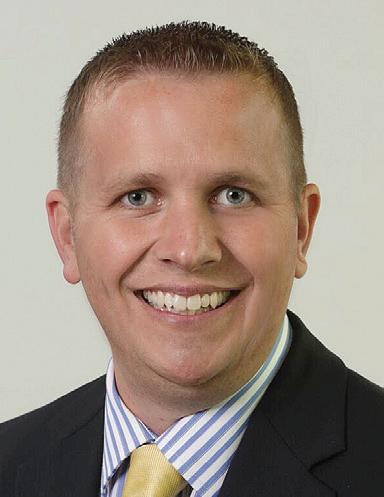
• Membership had a booth at the MPA Annual Convention and Exposition. With more than 500 members in attendance, it was nice to see all of you that stopped by to say hello.
• Be on the lookout for our “Member-Get-A-Member” campaign, which will be launching in May and will be very rewarding for our members who refer new members.
Whether you have recently joined MPA, or have been a part of our efforts to further the profession for years, we want to take this opportunity to help our members maximize the impact of their membership. When you become an MPA member, you receive complementary local association membership. Local associations fall under the umbrella of MPA and provide an opportunity to foster relationships with fellow pharmacy professionals in your community. Take advantage of this amazing opportunity and get involved if you can. If you are unsure which local association you belong to, please do not hesitate to contact me.
In closing, as a member-driven organization, we encourage you to refer any non-members to us. We are only as strong as our membership is and we look forward to an amazing year ahead!
MICHIGAN PHARMACIST’S ASSOCIATION CAREER CENTER
Membership in a professional association benefits the entire pharmacy profession. MPA advocates on behalf of front-line healthcare professionals, provides support resources that save time and empower members and gives members access to critical updates and publications. Whether you are actively looking for a new career opportunity or you’re an employer looking to engage with qualified pharmacy professionals, we have you covered with the MPA's Career Center.
As a member who is looking to hire, you receive $100 off every post that you purchase by using promotional code MPAMEM. Since this is a pharmacy-only job board, your audience is specifically targeted at people who you are looking for. Not only will you be posting on this job board, but you can also post to sites like ZipRecruiter and LinkedIn with the Partner Network at no extra cost.
Whether you are a student who is looking for their first position, or an experienced pharmacy professional back on the job hunt, the MPA Career Center has you covered. Find your next career opportunity by uploading your resume to potential employers who are specifically looking for pharmacy professionals. Take advantage of this member benefit.
The search for the right candidate, or the search for a new career opportunity doesn’t stop at the MPA Career Center. Networking is another valuable benefit of MPA. Networking with other pharmacy professionals helps build your reputation, your brand and will allow you to develop relationships that can yield career advice and support. Take advantage of the Career Center and networking opportunities your MPA membership provides by attending MPA events such as the Annual Convention and Exposition. Your local association is another avenue for networking.
10 MichiganPharmacists.org
— MEMBERSHIP —
— MEMBER
—
BENEFIT
TAKE A SWING and support the Foundation!
Please allow me to present you with an amazing opportunity you won't want to miss: the 2023 Michigan Pharmacy Foundation Golf Classic! This event is not only a fantastic time, but also an amazing way to support the pharmacy profession and make a real difference. In addition, we want you to join us in celebrating the Foundation’s 30th Anniversary.
BY RICK DRABEK, executive director, Michigan Pharmacy Foundation





The Michigan Pharmacy Foundation’s (MPF) mission is “To Foster the Future of Pharmacy.” By participating in the MPF Golf Classic on Wednesday, June 21, you are directly supporting the Foundation’s ability to fund pharmacy student scholarships; create networking opportunities for pharmacy students through MPF’s Adopt-a-Student program; deliver leadership development training to pharmacy professionals through MPF’s Health Professional Leadership Academy; and fund grants which support projects promoting health and wellness initiatives delivered through the pharmacy profession. In a world where health care is constantly evolving, by supporting MPF, you are investing in a brighter future for the pharmacy profession. The future of pharmacy is highly promising, with numerous opportunities for growth and innovation. What are you passionate about in the pharmacy profession that you would like to see the Foundation invest in? Please reach out to me at (517) 377-0227 or email rdrabek@MichiganPharmacists.org so we can discuss your ideas to help guide the future of the Foundation and advance its mission.
The MPF Golf Classic is the Foundation’s signature fundraising event and is more than just a day on the golf course – it's an opportunity to network with fellow pharmacy professionals and strengthen connections that will undoubtedly prove valuable in the years



to come. Plus, it's a chance to have a great time with friends and colleagues in a relaxed, enjoyable atmosphere. The golf outing features a shotgun start and 18 holes of golf at Eldorado Golf Course in Mason. A continental breakfast and lunch hot off the grill will be served, along with a post-event awards ceremony.
When you participate in the MPF Golf Classic, you are not just supporting the foundation and having fun – you also have the opportunity to win very nice prizes by competing in the contests held throughout the event, including closest to the pin, longest drive and hole-inone. There are plenty of chances to win great prizes that will make your day even more memorable. Whether you're a seasoned golfer or a newcomer to the sport, there's something for everyone at the MPF Golf Classic. Please consider taking this opportunity to join us at this event and invest in the future of the pharmacy profession, have a fantastic day on the golf course, make new connections and have the opportunity to win some great prizes. Supporting the MPF Golf Classic is a decision you won't regret and you'll be helping to make a real impact in the world of pharmacy. Don't miss out –register today at MPFgolf.org and secure your spot and early-bird pricing for this amazing event.
I would like to thank all of you for your ongoing financial support to MPF, as we would not be able, “To Foster the Future of Pharmacy” without you!
2023 Apr./May/June | Vol. 61, Issue 2 11
“When you participate in the MPF Golf Classic, you are not just supporting the foundation and having fun –you also have the opportunity to win very nice prizes.”
Register at www.mpfgolf.org *Early bird discount ends 5/31/23 G LF CLASSIC ANNUAL MPF GOLF CLASSIC Wednesday, June 21, 2023 | 9 a.m. to 4 p.m. | Eldorado Golf Course, Mason
G LF CLASSIC
Michigan Pharmacy Foundation Student Scholarships
The Michigan Pharmacy Foundation (MPF) has sponsored student pharmacist scholarships at each of the Michigan colleges of pharmacy for decades. The program is an opportunity "To Foster the Future of Pharmacy" and to pay forward the investments made in the Foundation. The program was originally administered by each college until 2013, when the MPF Board of Trustees made the decision to operate it through an application process in an effort to grow awareness. The scholarship program was redesigned to recognize a P2, P3 and P4 student pharmacist currently enrolled in a pharmacy program at an accredited college of pharmacy in the state of Michigan. Student pharmacists are required to submit a formal application that gathers information about their leadership skills, academic performance and interest in professional advancement.
The MPF Student Scholarships were awarded at the Michigan Pharmacists Association (MPA) Annual Convention and Exposition (ACE) Feb. 26. to Maria Gonzalez Chavez of Grand Rapids from Ferris State University; Macy Terese Shupp of Redford from Wayne State University; and Carleigh R. Robinson of DeWitt from the University of Michigan.

Larry Wagenknecht Endowed Scholarship
In 2020, the MPF Board of Trustees, working collaboratively with the MPA Executive Board, established the Larry Wagenknecht Endowed Scholarship as a legacy tribute to former MPA CEO Larry Wagenknecht for his 37 years of service to the Association and the profession of pharmacy.
The applicant that demonstrates the most exceptional leadership quality is awarded the scholarship. The third annual Larry Wagenknecht Endowed Scholarship was awarded at ACE 2023 to Katherine Bromm of Troy from the University of Michigan.
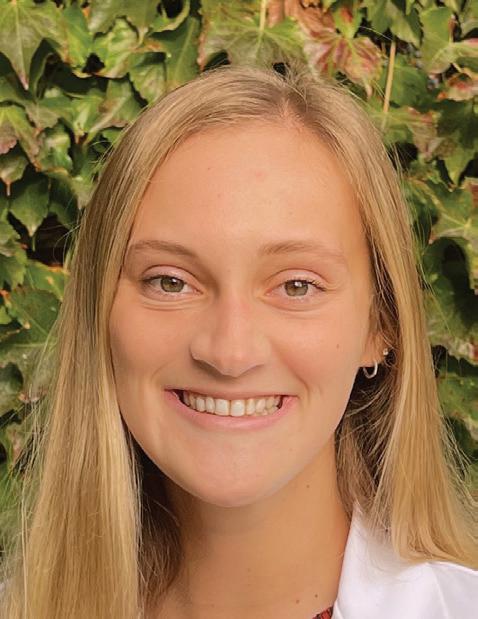


12 MichiganPharmacists.org
Macy Terese Shupp
— MPF SCHOLARSHIPS —
Maria Gonzalez Chavez Carleigh R. Robinson
Katherine Bromm
REGISTER TODAY FOR THE ANNUAL MPF GOLF CLASSIC



Wednesday, June 21, 2023


9 a.m. to 4 p.m.
Eldorado Golf Course
3750 W. Howell Rd., Mason
The weather is getting warmer, and it’s time to start thinking about golf — specifically the Michigan Pharmacy Foundations (MPF) Golf Classic on June 21. The MPF Board of Trustees is excited to continue the tradition of this annual fundraising event, which supports student pharmacist scholarships, innovative pilot projects and the MPF Health Professional Leadership Academy.
The event will be an 18-hole, four-person scramble with men’s, women’s and mixed team flights permitted. Whether you are a professional golfer or have never golfed before, you are sure to enjoy the day with colleagues, family and friends in this format of play.

Discounted registration is available through May 31 and can be found online at mpfgolf.org.
For more details about this year’s event, please email MPF Executive Director Rick Drabek at rdrabek@MichiganPharmacists.org
SPONSOR LINK: https://fs27.formsite.com/7jFRIO/nssif0nmcp/index
PARTICIPANT LINK: https://fs27.formsite.com/7jFRIO/cjcfyz4lqd/index
2023 Apr./May/June | Vol. 61, Issue 2 13
2022 second place team members Rick and Denise Pearl, Lee Peters and Pat Gannaway.
G LF CLASSIC
MPA Past President Ed Szandzik, then-MPA Chair Heather Rickle, then-MPA President-Elect Hope Broxterman and Jayson Zebari made up the winning first place team at the 2022 MPF Annual Golf Classic.
Golfers wait to tee off at the 2022 MPF Golf Classic.
IF NOT YOU, THEN WHO?
The Michigan Pharmacists Association (MPA) consistently and continually works on your behalf at the state level and connects with national pharmacy associations on federal issues. MPA utilizes bipartisan grassroots efforts to elevate and amplify the voices and opinions of pharmacy practice. Without you, MPA could not successfully impact changes that allow pharmacy professionals to practice to the full potential of their licenses.
At the core of effective advocacy efforts are grassroot campaigns that build widespread support to shape the political dialogue. Grassroots lobbying is often the most impactful way to get involved in the legislative process because it starts at the constituent level. In other words, it begins with individuals that vote for their respective legislators.


Have you considered how you can support your profession by participating in grassroots efforts by leading the charge locally?
Grassroots Efforts
Grassroots efforts utilize various strategies, from fundraising and registering voters to encouraging political conversation and lobbying an issue. Grassroots can be as simple as attending legislative coffee hours, calling a legislator’s office, writing a letter, or participating in organized functions set up by MPA. You can even invite your legislators to your pharmacy to learn more about your practice setting.
BY MATT BRESLIN, J.D., Partner at Karoub Associates and FARAH JALLOUL, Pharm.D., MBA, director of professional development, MPA

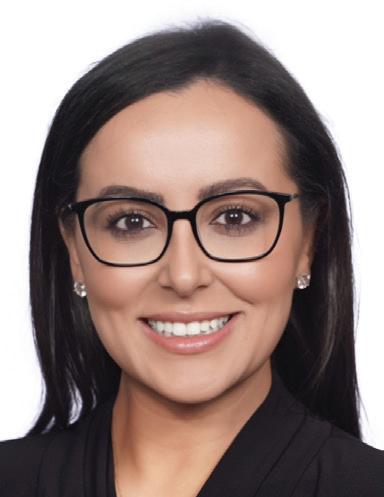
— LEGISLATIVE UPDATE —
"MPA utilizes bipartisan grassroots efforts to elevate and amplify the voices and opinions of pharmacy practice.
Without you, MPA could not successfully impact changes that allow pharmacy professionals to practice to the full potential of their licenses."
Why are grassroots efforts important?

Grassroots efforts allow constituents to establish relationships with elected officials. These relationships are vital because policymakers may not fully understand pharmacy's priorities. By providing information to the policymakers and being an advocate, you positively impact public health and legislation.
MPA encourages members to contribute by taking responsibility and action for their community and issues for the organization.
Reach out to your legislators with a few simple clicks
Start your advocacy efforts by regularly contacting your elected officials to educate them on pharmacy issues impacting you and your daily practice.
MPA has partnered with VoterVOICE to easily track health care-related bills throughout the legislature. You can find more information or sign up for alerts here: MichiganPharmacists. org/advocacy/advocacy-action-center/ mpaction/
MPA Advocacy Action Center
If you need or want to talk with your legislators, check out MPA’s recently-launched Advocacy Action Center on the MPA website. You can access information and take action on various issues that matter the most to you, your patients and your practice. Several issues are ready for you to act on now. Each issue page includes details on the legislation for you to review before you reach out to your elected official. It also has MPA's position and talking points.
The Advocacy User Profile section features individualized legislator contact information. This allows you
to make a phone call in addition to emailing and/or printing a letter. Customizing your letter to tell your legislator how much you care about the issue is more effective.
MPA will continue to update the Advocacy Action Center with issues moving through Congress and the state legislature. Visit MichiganPharmacists.org/advocacy to get started.
Lobbying
While your role in grassroots advocacy is vital, MPA has a formal lobbying process to impact legislation and good public policy.
MPA has two lobbyists on staff, CEO Mark Glasper and Eric Roath, MPA’s new director of government affairs. Additionally, MPA contracts with Karoub Associates, Michigan's longest-serving multi-client lobbying firm. Matt Breslin facilitates communication between MPA, the legislature, executive departments and the governor’s office.
The lobbyist’s role is to influence legislative action — or non-action — through oral or written communication, or an attempt to obtain the goodwill of a member or employee of the Legislature.

Lobbying is at the core of the governmental process and protected by the First Amendment to the Constitution: "Congress shall make no law … (abridging) the right of the people to petition the government for a redress of grievances."
With thousands of bills being introduced in a two-year session, effective lobbying at the grassroots level and through your professional organization is critical. Lobbying is also an essential lever for a productive government. Without it, governments would struggle to identify their citizens' competing interests. Fortunately, lobbying provides access to government legislators, acts as an educational tool and allows individual interests to gain power in numbers.
Fundraising
Certainly, no advocacy discussion would be complete without a nod to political action committee (PAC) fundraising. Campaign finance, also known as election finance or political donations, refers to the funds raised to promote candidates, political parties, or policy initiatives and referenda.
Fundraising activities can determine the future of pharmacy.
A strong fundraising effort can ensure adequate funds to support all legislative priorities. While some may see fundraising and advocacy in a negative light, it is a necessary step in the lobbying process. Grassroots advocacy, lobbying and fundraising work hand-in-hand to support the issues important to the pharmacy profession.
Make your PAC contributions today by scanning the QR code.
If not you, then who?
The profession of pharmacy is important to us, our patients and our communities. You are a vital link in the advocacy process that shapes the future of our profession. Get engaged and make your voice heard today! If you are looking for ways to get more involved, contact Eric Roath at eroath@MichiganPharmacists.org
2023 Apr./May/June | Vol. 61, Issue 2 15 — LEGISLATIVE UPDATE —
"A strong fundraising effort can ensure adequate funds to support all legislative priorities. While some may see fundraising and advocacy in a negative light, it is a necessary step in the lobbying process. Grassroots advocacy, lobbying and fundraising work hand in hand to support the issues important to the pharmacy profession."
BRENZAVVY (BEXAGLIFLOZIN) FOR TYPE-2 DIABETES
Benzavvy™ (bexaglifozin), a new medication to help improve glycemic control in adults with type-2 diabetes (T2DM), has recently gained FDA approval. Manufactured by TheracosBio, LLC, in Massachusetts, Brenzavvy is a sodium-glucose cotransporter 2 (SGLT2) inhibitor available in 20-milligram tablets for a once-a-day dose.1 Below are summaries of clinical trials recently published highlighting the efficacy of Brenzavvy.
BY SAMANTHA BODAN, Pharm.D., PGY1 resident

In phase 3, a 24-week trial investigated the efficacy of add-on therapy in patients with T2DM. Patients were randomized to receive bexagliflozin (20 milligrams) or sitagliptin (100 milligrams) concurrently with metformin. Bexagliflozin achieved non-inferiority for the primary outcome, reduction in hemoglobin A1c (HbA1C) at 24 weeks.2 It also demonstrated a mean change in HbA1c of - 0.74 (95 percent CI -0.86 percent to - 0.62 percent) compared to - 0.82 (95 percent CI - 0.93 percent to - 0.71 percent).2 Secondary endpoints included changes in fasting plasma glucose (FBG), body mass and systolic blood pressure (SBP) from baseline to the 24-week period. Bexagliflozin did show significant differences compared to sitagliptin in FBG, - 1.82 millimoles per liter (mmol/L) vs. - 1.45 mmol/L (one-sided P equals 0.0123) and body mass - 3.35 kilograms vs. - 0.81 kilograms (P less than 0.0001), respectively.2 An additional secondary endpoint included the evaluation of SBP, where a mean difference of - 2.33 millimeters of mercury (mmHg) (P equals 0.0276) was observed between the bexagliflozin and the sitagliptin arm.2

A phase 3 multi-national trial evaluated the safety and efficacy of bexagliflozin in patients with T2DM and chronic kidney disease (CKD) compared to a placebo.3 The primary outcome was a percent change in HbA1c from baseline to 24 weeks. Secondary outcomes included changes in body weight, SBP, albuminuria and HbA1c stratified by CKD stage. Bexagliflozin reduced HbA1c levels by an average of 0.37 percent (95 percent CI, 0.02 to 0.54 percent, P less than 0.001) compared to placebo.3 Additionally, patients with CKD stage 3a and 3b experienced average placebocorrected reductions in HbA1c of 0.31 percent (P equals 0.007) and 0.43 percent (P equals 0.002), respectively. Bexagliflozin decreased body weight by an average of 1.61 kilograms (95 percent CI, 1.00 to 2.22, P less than 0.001), SBP 3.8 mmHg (95 percent CI, 0.67 to7.1, P equals 0.02), and FPG 0.76 mmol/L (95 percent CI 0.26 to 1.26).3 Investigators also observed a placebo-adjusted reduction in albuminuria (-20.1 percent, P equals 0.03).3
The Bexagliflozin Efficacy and Safety Trial (BEST) was presented at the American Diabetes Association's eighth scientific session. The investigators evaluated the efficacy and safety of bexagliflozin (20 milligrams) compared to a placebo for glucose control, weight and blood pressure in patients with T2DM. They established cardiovascular disease or multiple risk factors for cardiovascular disease. Patients had an HbA1c of 7.5 to 11 percent and an eGFR greater than or equal to 45. Patients (n equals 1,700) were stratified into one of the following groups: established atherosclerotic CVD; heart failure; or greater than or equal to 55 years with at least two cardiovascular risk factors. The primary endpoint showed a placebo-corrected reduction in HbA1c of 48 percent (95 percent CI -0.56 to -0.39, P less than 0.0001), SBP reduced by 3.0 mmHg (95 percent -5.5 to -0.4, P equals 0.02), and decreased weight by 2.7 kilograms (-3.1 to -2.2, P less than 0.0001). These preliminary results demonstrate the greatest potential clinical impact of bexagliflozin.
SGLT2 inhibitors have revolutionized the management of T2DM, which have shown additional benefits, including weight loss, blood pressure reduction and slowing kidney disease progression.2-5 The data from landmark trials demonstrate the beneficial effects of SGLT2 inhibitors extending to non-diabetic patients with CKD and heart failure.5 Bexagliflozin has been shown to be safe and effective in patients with diabetes and CKD stage 3b and preliminary findings of the BEST trial suggest similar effects of bexagliflozin to other licensed drugs in its class.1-5 Experts feel this approval presents physicians with additional therapeutic options in managing patients with T2DM and has the potential to extend to non-diabetic patients with established CKD and/or heart failure.5
Bexagliflozin is not recommended for patients with type-1 diabetes, for treating diabetic ketoacidosis or in type-2 patients with end-stage renal disease requiring dialysis. In the aforementioned studies, bexagliflozin showed good safety and tolerability profiles.1-5 Overall, adverse event rates were generally balanced between the intervention arm compared to the active or placebo treatment arms.1-5 Most common adverse reactions included polyuria and mycotic infections.5 These effects mirror similar agents on the market currently.
References available upon request
NEW DRUG ON THE MARKET
16 MichiganPharmacists.org — PROFESSIONAL PRACTICE —
"SGLT2 inhibitors have revolutionized the management of T2DM, which have shown additional benefits, including weight loss, blood pressure reduction and slowing kidney disease progression."
THE END OF THE PUBLIC HEALTH EMERGENCY

The end of the federal Public Health Emergency (PHE) declaration for COVID-19 is rapidly approaching, leaving many questions. In February, the Department of Health and Human Services (HHS) announced the PHE would end on May 11, 2023. The announcement cites the Biden administration’s COVID-19 vaccination efforts and the decrease in daily COVID-19 reported cases, hospitalizations and deaths as evidence the time has come to return to normal. This has left many wondering how this will affect many public health changes enacted by PHE, such as vaccines, treatment and tests for COVID-19.
BY MARIA GONZALEZ CHAVEZ, Pharm.D. Candidate 2023,
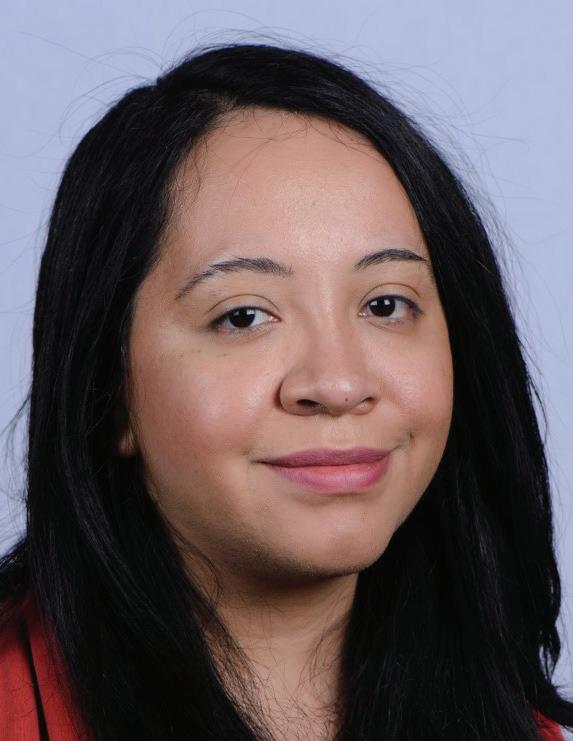 State University
State University
COVID-19 vaccines and boosters will remain free of charge – with a caveat. The federal government purchased vaccines to stockpile. The vaccines will continue to be free until the federally-purchased supply runs out, or if there are any changes to vaccine recommendations.
For example, a new formula booster for the fall would not be covered by the government but would still be covered under private or public insurance. Unfortunately, this may leave the underinsured vulnerable. Similarly, COVID-19 treatments like Paxlovid™ will still be available while the federal stockpile remains. Because the government recently purchased a significant amount from Pfizer, this stockpile will likely last through the end of 2023. After the government supply is gone, it will transition to the commercial market. Again, those with private or public insurance will continue to have access to it, albeit with a copay.
Lastly, at-home COVID-19 antigen tests will also be affected by the end of the PHE. Insurers will no longer be required to cover at-home tests. Private insurers, including Medicare Advantage plans, may continue to cover the at-home tests.
Traditional Medicare will not cover these tests. For those with Medicaid, at-home tests will remain covered completely through September 2024.
Another area that will be affected is controlled substance prescribing. Prescribers with a valid DEA license could prescribe controlled substances (Schedule 2-5) via telehealth visits. Once the PHE ends, this flexibility will end and in-person visits will be required. However, the DEA has issued a proposed rule allowing practitioners to prescribe controlled medications via telemedicine without an in-person visit under limited circumstances. The rule is not in effect and will go before public comment.
How will this affect pharmacies?
• Food and Drug Administration (FDA) Emergency Use Authorizations (EUA) for vaccines and COVID-19 treatments will not be affected because they are not dependent on the HHS Public Readiness and Emergency Preparedness (PREP) Act. Patients can continue to receive COVID-19 vaccines and therapies at no cost while the federal stockpile remains.
• At-home COVID-19 tests will be covered for Medicaid recipients through September 2024. For those with private insurers, costs may vary. This is the same case for pharmacist-provided COVID-19 testing.
• The end of the PHE also signals the impending end of the PREP Act, which is set to expire in October 2024. Pharmacists are qualified persons under PREP Act, providing pharmacists, student pharmacists and technicians with liability coverage to order and administer COVID therapeutics. Access liability coverages under the PREP Act may be affected by the end of the PHE. This may affect pharmacists’ ability to order and administer COVID-19 therapeutics.
• Medicaid patients may have their coverage affected as Michigan restarts Medicaid eligibility renewals starting April 2023. Patients must prepare for eligibility renewals by ensuring their contact information is current (address, register with MI Bridges, contact MDHHS office for renewal packet).
References available upon request
2023 Apr./May/June | Vol. 61, Issue 2 17 — PROFESSIONAL PRACTICE —
Ferris
"The federal government purchased vaccines to stockpile. The vaccines will continue to be free until the federallypurchased supply runs out, or if there are any changes to vaccine recommendations."
ACE 2023:
THE MOST ENTERTAINING AND EDUCATIONAL MPA EVENT OF THE YEAR

The 2023 Michigan Pharmacists Association’s Annual Convention and Exposition

 BY LISA N. POWERS, CAE, CTA, director of education and events, Michigan Pharmacists Association
BY LISA N. POWERS, CAE, CTA, director of education and events, Michigan Pharmacists Association

The Michigan Pharmacists Association (MPA) held its 39th Annual Convention and Exposition (ACE), back fully in-person from Feb. 24-26. With an almost all-new crew at MPA, this year’s ACE had a buzz of excitement from the start. From planning educational sessions, to meeting the pharmacy profession’s current needs, to increasing opportunities for students and vendors, the continuous positive feedback received from attendees was warmly welcomed and appreciated!
The convention began Feb. 24 with a full morning of education programming, followed by the Pharmacy Political Action Committee (PAC) Panel and Luncheon sponsored by Walgreens and Hometown Pharmacy. Once again, MPA offered product theater luncheons, where select sponsors were able to visit with attendees during a provided lunch event where they could showcase their new products and services. This year’s product theater sessions were hosted by Lilly, Sanofi, Merck and Heron Therapeutics.
The afternoon featured the opening keynote session with National Association of Boards of Pharmacy Executive Director Al Carter and immediate past Chair of the Board of Pharmacy Charlie Mollien. This engaging and interactive “fireside chat” generated numerous questions from participants and was the highlight for many attendees. More education sessions rounded out the afternoon, along with the Exhibit Hall grand opening and reception.
The second day began with a continental breakfast. Educational programming resumed at 8:30 a.m., with offerings including law and ethics initiatives, medication therapy management (MTM) and more. The morning’s keynote session consisted of a heavy-hitting legislative panel comprised of national pharmacy leaders and advocates from all sections of pharmacy:
• Ilisa Bernstein, Pharm.D., J.D., FAPhA, interim CEO for the American Pharmacists Association
• Anne Cassity, J.D., vice president, federal and state government affairs for the National Community Pharmacists Association
• Tom Kraus, J.D., MHS, vice president of government relations for the American Society of Health-System Pharmacists
• Bill Tighe, vice president, federal government affairs for the National Association of Chain Drug Stores
18 MichiganPharmacists.org
— ACE RECAP —
MPA Executive Board at the ACE Awards Banquet.
Executive Director of the National Association of Boards of Pharmacy Lemrey “Al” Carter, left, listens during the Opening Keynote Session to Charlie Mollien, immediate past-chair of the Board of Pharmacy.
Our distinguished panelists spoke on major legislative topics facing the industry, both locally and nationally, in 2023 and beyond. Lunch was served in the exhibit hall for attendees that did not elect to attend a practice section luncheon, again offering more facetime with vendors. Those who purchased advance tickets to a practice section luncheon were able to witness and applaud as practice section board members recognized award winners, including pharmacists of the year. The practice section lunches serve as the annual meetings for the Michigan Society of Pharmacy Technicians (MSPT), the Consultant and Specialty Pharmacists of Michigan (CSPM) and the Michigan Society of Community Pharmacists (MSCP). Because the Michigan Society of Health-System Pharmacists’ (MSHP) annual meeting takes place each October, the MSHP leadership networking luncheon for student pharmacists provided student MPA members with the opportunity to meet health-system pharmacy leaders and discuss professional practice issues, career options and personal stories.
The National Alliance of State Pharmacy Associations (NASPA)-Nonprescription Medicines Academy (NMA) Student Pharmacist Self-Care Championship was held Saturday afternoon, where three student pharmacists from each college of pharmacy participated in a three-round "Jeopardy!"-style competition showcasing their extensive overthe-counter knowledge. The winning team from Ferris State University has bragging rights for the year! Additionally, the Michigan Pharmacy Foundation (MPF) Student Scholarship Program recipients were honored. This year’s MPF Adopt-a-Student Program was busier than ever. Sponsors (or “parents”) selected a student pharmacist from an “adoption” catalogue. Students and sponsors alike find this endeavor to be particularly rewarding and a way to “grow within” the industry or “support the future of” the industry. Participation at the sponsor level of a contribution of $145 to the MPF includes a Saturday evening awards banquet ticket for their student to attend the dinner program with them. There were reserved seats at the banquet for those in the program.
AWARDS RECOGNITION


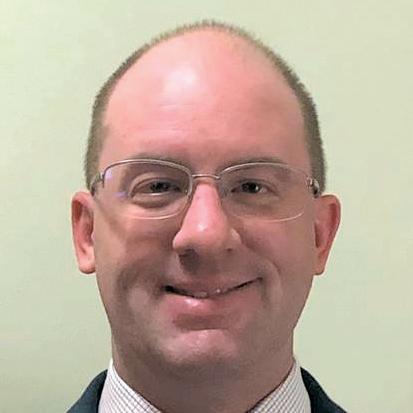
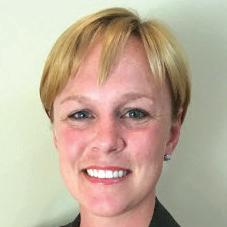
The Saturday evening MPA Awards Ceremony and Banquet was once again held in the Ambassador Ballroom. Those in attendance participated in a lively cocktail reception, a delightful dinner and a cheer-filled awards ceremony. MPA recognized several worthy awardees, including our 25-, 40- and 50-year members with the Years of Membership Awards; our Pharmacy Hall of Honor inductees; as well as our elected boards, leaders and fellows for their service. MPA also honored scholarship recipients, noted practice section awardees, the MPA Pharmacist of the Year and other honorable awardees. Congratulations to those who were recognized.

2023 Apr./May/June | Vol. 61, Issue 2 19 — ACE RECAP —
Judy Freidhoff
Jeanette Gooden Brian Linne Mark Lutz
Carl Olson Michael Rose Nellie Sahakian Rima Shaife
Anne Wierenga Frances Zalewski
Michael Aleverson Henry Bzdziuch Kathleen Sheehy
Andrea Vivian Jesse Vivian Henry Yee
25-Year Recipients
40-Year Recipients
50-Year Recipient 40 50 25
Terry Gottschall
James Horton II
Katie Wenstrom Jason Williamson
Pharmacy Hall of Honor
Executive Board Service Awards
Heather Rickle
Heather Somand
Zaid Yousif
Jesse Hogue
MICHIGANPHARMACISTS
N 2 0 2 3
Thomas Tomaski
ASSOCIATIO

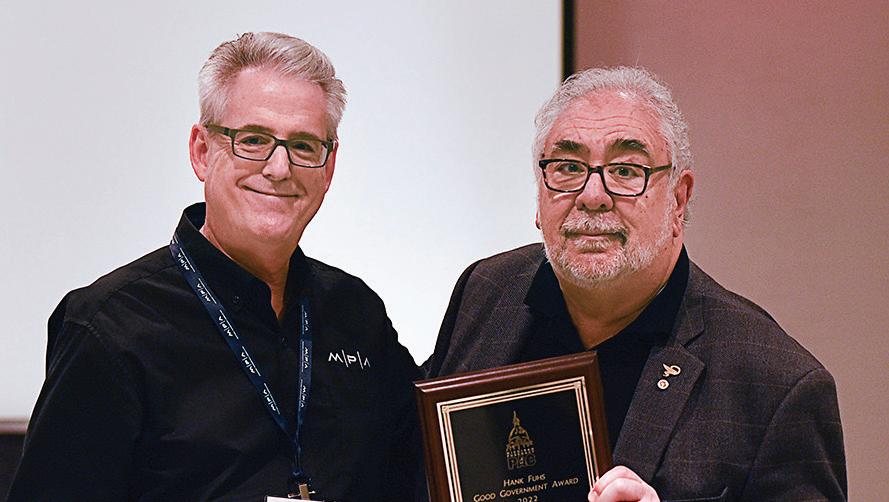

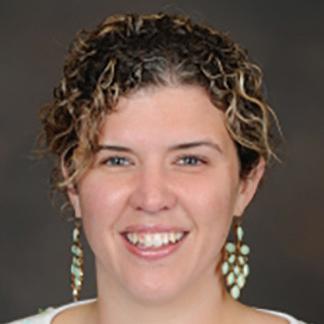

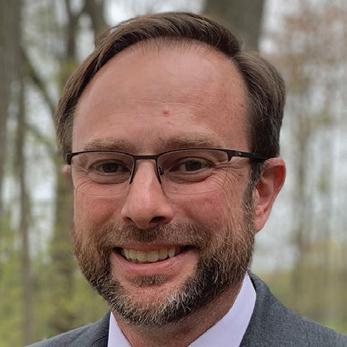

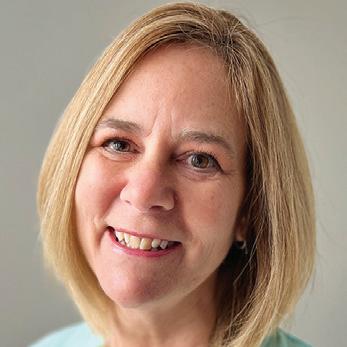

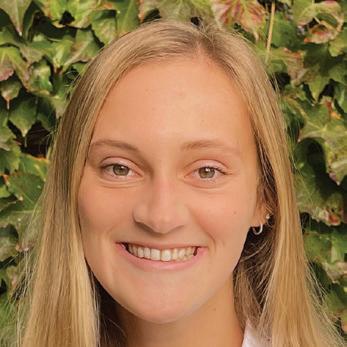


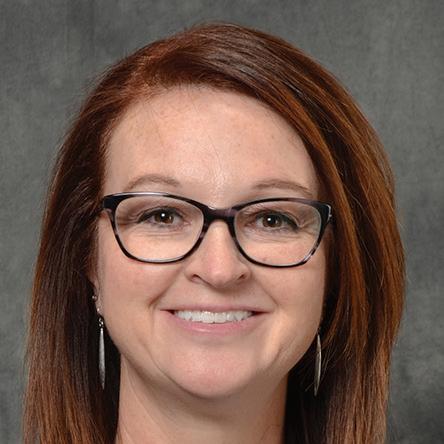
20 MichiganPharmacists.org — ACE RECAP —
At left, Lisa Bade is honored as MPA’s Pharmacist of the Year.
Below, MPA CEO Mark Glasper, left, presents Greg Baise the Hank Fuhs Good Government Award.
Pharmacist of the Year Award
Lisa Bade
Bowl of Hygeia Award
Heidi Diez
Executive Board Medal
Dianne Malburg
Excellence in Innovation Award
Michael Klepser Accepting on behalf of CHARM
Distinguished New Pharmacist Practitioner Award
Farah Jalloul
Fred W. Arnold Public Relations Award
Elaine Bailey
Larry Wagenknecht Endowed Scholarship
Katherine Bromm University of Michigan
Carleigh R. Robinson University of Michigan
Maria Gonzalez Chavez Ferris State University
Macy Terese Shupp Wayne State University
Michigan Pharmacy Foundation Student Scholarship Program
Fellow of Michigan Pharmacists Association
2 0 2 3
Susan DeVuyst-Miller MICHIGANPHARMACISTS ASSOCIATIO
N
2022-2023 Awards
We thank everyone who joined us in Detroit for the 2023 Annual Convention and Exposition!





We look forward to seeing everyone next year with our last conference at the Renaissance Center before heading to Traverse City in 2025!
GOLD SILVER BRONZE
—


MORE AWARDS AND HONORS —
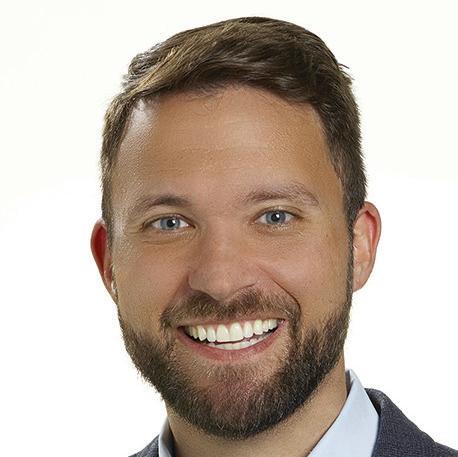
Congratulations to Peggy Malovrh who was recently named a Fellow of the American Society of HealthSystem Pharmacists! Malovrh is the clinical supervisor and residency program director at Sparrow Hospital in Lansing and received her Bachelor of Science in 1980 and her Doctor of Pharmacy in 1993 from Ferris State University College of Pharmacy. She is a preceptor for student pharmacists from the University of Michigan, Wayne State University Eugene Applebaum College of Pharmacy and Health Sciences and Ferris State University.
Malovrh is currently serving as a delegate to the Michigan Pharmacists Association (MPA) House of Delegates and previously served on the MPA Executive Board. She is a past president of the Capital Area Pharmacists Association and the Michigan Society of Health-System Pharmacists (MSHP), along with being a member of the American Society of Health-System Pharmacists (ASHP) since 1981 and the American College of Clinical Pharmacy since 1998.
Malovrh is board-certified in pharmacotherapy, is a Fellow of MPA and has been an MPA member for 42 years. She was recently elected to her second term as a Michigan Pharmacy Foundation (MPF) trustee and is currently serving as MPF’s vice chair.

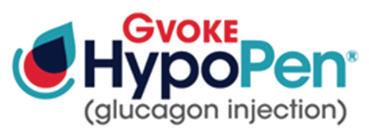

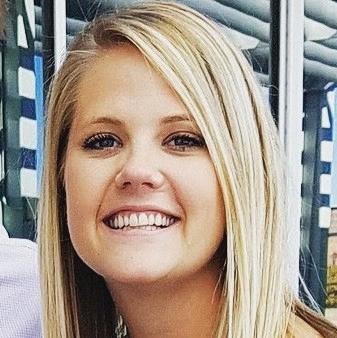
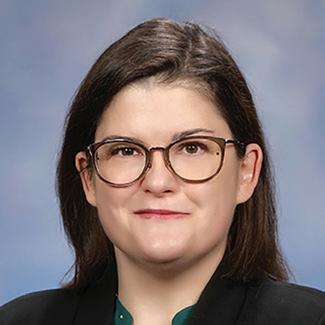

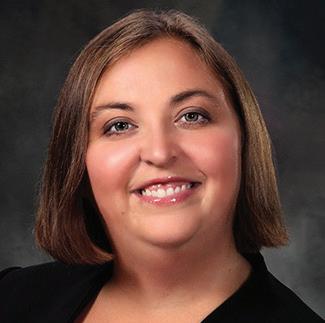
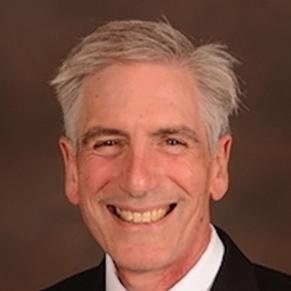



— ACE RECAP —
Michigan Society of Community Pharmacists (MSCP) Pharmacist of the Year Award
Michigan Society of HealthSystem Pharmacists (MSHP) Pharmacist of the Year Award
Consultant and Specialty Pharmacists of Michigan (CSPM) Pharmacist of the Year Award
Michigan Society of Pharmacy Technicians (MSPT) Pharmacy Technician of the Year
Michigan Society of Pharmacy Technicians (MSPT) Service Award
Charlie T. Mollien
Nada Farhat Doreen Kern Wrigley’s Pharmacy
Steven Erickson
Legislator of the Year Award
Good Public Health Policy Award
Hank Fuhs Good Government Award Ernie Koch Striving for Excellence Award
Lisa Diephouse
Other
Rep. Lori Stone
Sen. Curt VanderWall Rep. Kara Hope
Greg Baise
PHRASES TO OBEY
BY BROOKE ROE, Pharm.D., BCPS, Meijer, manager of pharmacy quality and accreditation


This year marks my 15th straight year in community pharmacy. While many of my colleagues in pharmacy have significantly more (or a few less) years of service, I’m hopeful we all have the same perspective on pharmacy’s future: excitement. Pharmacies have taken center stage as we come out of our cornerstone role during the pandemic. We are under a lot of stress to perform. Some would call this pressure, others would call it opportunity. Call it what you want – it’s created a lot of commotion to evaluate workloads. While I will not suggest that I can solve the entire workload debate, there are several measures we can take individually to improve our outlook.
As a recovering over-committer, I’ve found it necessary to implement practices to promote self-care. My Facebook memories like to remind me of my love for quotes and it seems applicable to share a few that help summarize my practices. Here’s some of the phrases I obey:
1. You cannot pour from an empty cup. Our primary job in pharmacy is to take care of others. However, if you’re not taking care of yourself, it’s very hard to take care of anyone else at the top of your ability. It’s crucial to identify what brings you joy (fills your cup) and seek that out regularly. When we take better care of ourselves, we care better for others.

2. Three fingers pointing back at you. The first time I heard this was in elementary school tattle-telling on my brother, but the message remains the same after all these years. Before blaming others, it’s important to first look at your role in a situation. With accountability, we can achieve more together. After all, when you point at someone else, you have three fingers pointing back at you.

3. Bloom where you are planted. Occasionally, we can find ourselves in less-than-ideal circumstances. Rather than dwelling on everything that isn’t right, I’ve found it helpful to look for the good in all circumstances. By changing your perspective, your situation almost automatically improves. One of the ways I fill my cup, hold myself accountable and bloom is by being involved. I’m excited about the work the Michigan Society of Community Pharmacists (MSCP) is doing to enhance patient care in the community setting.

Particularly, we’ve identified two priorities for the upcoming year. First, we would like to expand pharmacists’ clinical role. Our primary focus will be on allowing pharmacists to prescribe oral contraceptives. Second, we would like to enhance pharmacy practice efficiencies to improve patient access. This means looking at making minor modifications via Board of Pharmacy rules, legislation, state-wide standing orders and collaborative practice agreements. The initial focus for improved efficiency will be pharmacy-based immunizations.
Even though I could not have predicted the events that have unfolded (especially those in 2020) over the years, one thing has not changed. Fifteen years ago, as a new pharmacy technician, I made the decision to become a pharmacist. If given the chance for a redo, I’d still make the same choice.
22 MichiganPharmacists.org — MSCP PRESIDENT
"Pharmacies have taken center stage as we come out of our cornerstone role during the pandemic. We are under a lot of stress to perform. Some would call this pressure, others would call it opportunity. Call it what you want – it’s created a lot of commotion to evaluate workloads."
Home Mortgage Loans Made for Pharmacists and Medical Professionals.
PHYSICIAN MORTGAGE PROGRAM:
• Available for PharmD, MD, DO, DDS, DMD or DVM 1
• 100% financing up to $1 million 2
• 89% financing up to $2 million
• No private mortgage insurance (PMI)
• Medical Residents with proof of fully executed employment contract eligible for loan amounts up to $500,000 3
• Student Loans may be excluded from debt-to-income calculations if in deferment or forbearance for at least 12 months following closing
TONY CABRERA
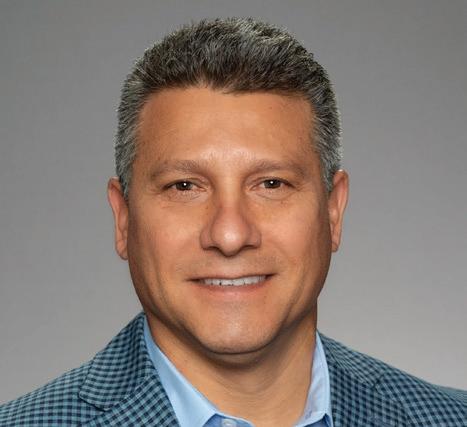
NMLS# 533270
Mortgage Sales Manager 734-417-6008 | tcabrera@firstmerchants.com
firstmerchants.com/tonycabrera
1Available to medical doctors who have a minimum of a Doctor of Pharmacy (PharmD), Medical Doctor (MD), Doctor of Osteopathy (DO), Doctor of Dental Surgery (DDS), Doctor of Dental Medicine (DMD), or Doctor of Veterinarian Medicine (DVM) degree and an employment contract or verification of terms of employment acceptance. Medical Doctors with the degrees listed above but specializing in a particular field including but not limited to Dentists, Podiatrists and Ophthalmologists are also permitted. 2100% financing does not exclude closing costs and/or prepaids that may be required. 3Borrower must have a minimum credit score of 680 to be eligible. Must be purchase of a primary residence in Michigan, Ohio, Indiana, Illinois or Kentucky. All loans are subject to credit approval. Program is available only to qualified borrowers. Please contact First Merchants Bank to learn more about the program and the eligibility requirements. Program is subject to change without notice. Underwriting terms and conditions apply. Some restrictions may apply.
PTCB Launches New Certificate for Pharmacy Technicians
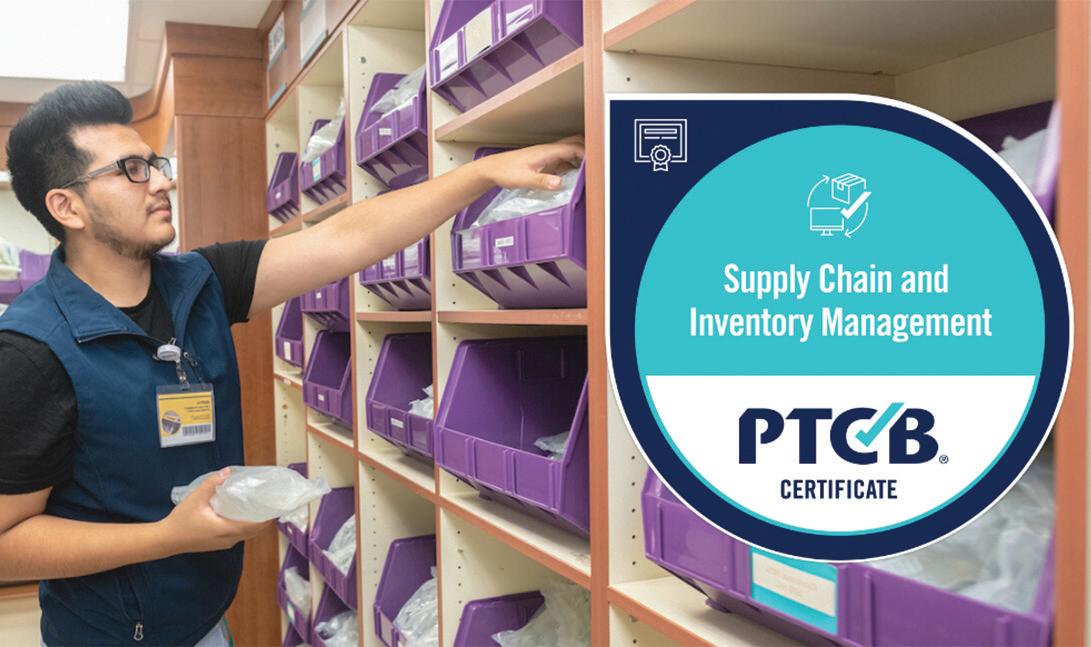
As part of its mission to ensure pharmacy technicians meet the evolving challenges in medication safety, the Pharmacy Technician Certification Board (PTCB) has launched a new Supply Chain and Inventory Management Certificate. This advanced credential assesses pharmacy technicians’ knowledge of laws and regulations, administrative processes, inventory management, documentation requirements and key players in the supply chain.
Pharmacy technicians play an increasingly vital part in patient care teams, and fluency in supply chain and inventory management can help keep the focus on safety at every step, from the manufacturing lab to the medicine cabinet. By earning this certificate, technicians can demonstrate their understanding of supply chain and inventory management regulations, processes, and responsibilities and better adapt to changing guidelines.
ptcb.org/credentials

2023 Apr./May/June | Vol. 61, Issue 2 23
View all pharmacy technician credentials at
THE PHARMACIST-PRESCRIBED SOLUTION TO A HORMONAL CONTRACEPTION PROBLEM
 BY THOMAS BURNS, Pharm.D., PGY1
BY THOMAS BURNS, Pharm.D., PGY1
Apharmacist’s ability to provide efficient and effective clinical services continues to solidify their role as a member of the healthcare team. Moreover, the continued expansion of clinical services in the community pharmacy space has many asking what is next. At least 20 states have already answered that question by adopting legislation allowing pharmacistprescribed hormonal contraception.1 With approximately half of all pregnancies in the United States being unplanned, the need for expanded access to hormonal contraception is a problem that pharmacists can offer a solution to.2
It is estimated that 1 in 4 women in the U.S. have trouble with access to hormonal contraception.3 However, in a survey of U.S. women ages 18 to 44, 41 percent stated they would begin using a contraceptive if available through a pharmacy. Among women already using contraception, 66 percent said they would like to receive a prescription from a pharmacy.4 With community pharmacies readily accessible and already integrating clinical services (for example, pharmacybased immunizations) into their current workflow, hormonal contraception prescribing presents an enormous opportunity to increase healthcare access for many.5-7 Further supporting this need, early adopter states that have extended prescriptive authority to pharmacists have also shown the adoption of pharmacist reimbursement mechanisms, strong patient satisfaction and support from physicians.5-7 Better yet, it has been demonstrated that pharmacists can prescribe and dispense hormonal contraception in a timely manner with no increase in error when compared to other clinicians.8
24 MichiganPharmacists.org
— MSCP FOCUS
"It is estimated that 1 in 4 women in the U.S. have trouble with access to hormonal contraception."
community pharmacy resident, SpartanNash
The training and workflow process in community pharmacies is similar to other clinical services provided. Summarizing from excellent continuing education sessions at the 2023 Michigan Pharmacists Association (MPA) Annual Convention and Exposition, the following have been discussed when pharmacist-prescribed hormonal contraception has been implemented:
Location
• A private, quiet pharmacy space compatible with Health Insurance Portability and Accountability Act (HIPAA) requirements is preferred.
Training and education
• Consider using existing clinical training resources from local or national sources, Accreditation Council for Pharmacy Education (ACPE) courses and/or requiring continuing education annually or per renewal cycle to ensure competency.
• Practice! Utilize mock patient consultations to gain comfort.
Staff support
• Identify and/or assign a “champion” for your pharmacy-based clinical services.
• Utilize all pharmacy staff, including pharmacy clerks and pharmacy technicians.
• Utilizing your pharmacy team and working with them to incorporate into the workflow, either as scheduled appointments or walk-ins.
Documentation
• Consider an informed patient consent form to promote patient autonomy and instill confidence and trust in your team!
• Consider a standardized process that includes questionnaires and workflow based on the U.S. Medical Eligibility Criteria (U.S. MEC) and U.S. Selected Practice Recommendations for Contraceptive Use (U.S. SPR).
The U.S. MEC guides the pharmacist to determine if a patient is eligible for therapy at the pharmacy or if they will need to be referred to a provider.
• Effectiveness chart/selection chart
Consider other resources that may be helpful to pharmacists and patients, such as an effectiveness and product selection chart provided in the U.S. MEC.
• Reminder: Document everything!
Reimbursement:
• For clinical services:
Identify pricing and business model for cash-pay patients.
Work towards government-funded and commercial insurance coverage.
• For product and dispensing:
For patients with insurance, adjudicate per standard practice.
Consider identifying affordable options for cash-pay patients.
• Pharmacists must be reimbursed for services rendered!
While pharmacists' rapid advancement in hormonal contraception prescribing has been seen in the last eight years, more than half of states have yet to grant the right for pharmacists to prescribe. For Michigan, the time is now. Pharmacist-prescribed hormonal contraception is coming. As we move forward, please give sincere thought to how MPA, its practice sections and local organizations can support you in this advancement of the profession of pharmacy.
References:
1. Pharmacist Prescribing: Hormonal Contraceptives. NASPA. https://naspa.us/resource/contraceptives/
2. Prevent Unintended Pregnancy | 6|18 Initiative | CDC. Published March 10, 2022. https://www.cdc.gov/ sixeighteen/pregnancy/index.htm
3. Lesson: Prescribing Oral Contraceptives: A New Pharmacist Role. https://journalce.powerpak.com/ce/ prescribing-oral-contraceptives-a-new
4. Landau SC, Tapias MP, McGhee BT. Birth control within reach: a national survey on women’s attitudes toward and interest in pharmacy access to hormonal contraception. Contraception. 2006;74(6):463-470. doi:10.1016/j.contraception.2006.07.006
5. Over-the-Counter Access to Hormonal Contraception. https://www.acog.org/en/clinical/clinical-guidance/ committee-opinion/articles/2019/10/over-thecounter-access-to-hormonal-contraception
6. Eckhaus LM, Ti AJ, Curtis KM, Stewart-Lynch AL, Whiteman MK. Patient and pharmacist perspectives on pharmacist-prescribed contraception: A systematic review. Contraception. 2021;103(2):66-74. doi:10.1016/j. contraception.2020.10.012
7. Gardner JS, Downing DF, Blough D, Miller L, Le S, Shotorbani S. Pharmacist prescribing of hormonal contraceptives: Results of the Direct Access study. Journal of the American Pharmacists Association 2008;48(2):212-226. doi:10.1331/JAPhA.2008.07138
8. 19-1392 Dobbs v. Jackson Women’s Health Organization (06/24/2022). Published online 2022:213.
2023 Apr./May/June | Vol. 61, Issue 2 25
— MSCP FOCUS
"While pharmacists' rapid advancement in hormonal contraception prescribing has been seen in the last eight years, more than half of states have yet to grant the right for pharmacists to prescribe. For Michigan, the time is now. Pharmacist-prescribed hormonal contraception is coming. As we move forward, please give sincere thought to how the Michigan Pharmacists Association, its practice sections and local organizations can support you in this advancement of the profession of pharmacy."
COVID-19, INFLUENZA AND RSV TRIDEMIC
BY FARZANEH AZIZI, Pharm.D., PGY1 resident, Meijer

COVID-19, influenza and respiratory syncytial virus (RSV) infections are contagious respiratory illnesses that circulate year-long but usually peak in fall and winter.1 In late 2022, the co-circulation of seasonal influenza, COVID-19 and RSV was high across the United States.2,3 This spike in viral infections led to a shortage of certain antivirals and over-the-counter (OTC) medications for symptom management. COVID-19, influenza and RSV spread via respiratory droplets dispersed in the air when an infected person coughs, sneezes or talks, as well as on frequently-touched surfaces in communal areas, such as doorknobs and elevator buttons.4,5,6
Therefore, the Centers for Disease Control (CDC) and other healthcare organizations stress the importance of public practice of preventative measures. These include avoiding close contact with people who are ill; staying at home when sick; covering the nose and mouth when coughing or sneezing; wearing a face mask; and hand washing or sanitizing frequently. All are crucial steps in preventing the spread of viral infections.4,5,6
difficult without laboratory testing.4,5,6 These illnesses can present a combination of the following symptoms: fever, chills, pain, fatigue, cough and breathing difficulties.4,5,6 Most mild to moderate infections are selflimiting and resolve on their own, though symptomatic management can help the patient feel more comfortable.1,4,5,6 However, there has been a shortage of certain OTC products such as acetaminophen and ibuprofen (especially children’s formulations) as well as prescription products such as oseltamivir due to the surge in the number of respiratory infections this season.
BY JAMIE VROMAN, Pharm.D., regional clinical pharmacy specialist, Meijer
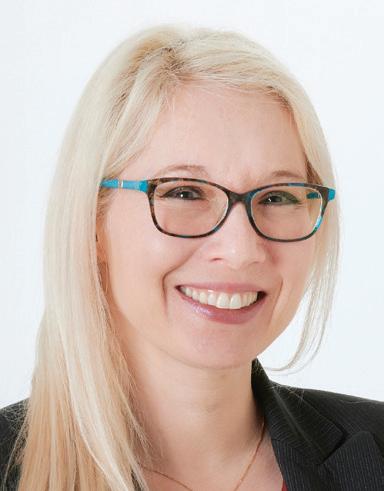

In addition, vaccination is the best tool to minimize disease spread and mitigate complications and disease severity.1,4,5 In the absence of contraindications, the CDC recommends everyone six months and older receive the annual flu vaccine as well as the COVID-19 vaccine series and its appropriate booster.7
Signs and symptoms of COVID-19, RSV and influenza infections are similar, which makes the correct diagnosis
Acetaminophen (Tylenol®) and ibuprofen (Motrin® , Advil®) are medications for symptomatic pain management and fever.8 During such supply shortages, healthcare providers, including pharmacists, can recommend a switch to age-or-weight-appropriate doses of other available formulations of these medications. For instance, dose-appropriate chewable or tablet formulations of acetaminophen could be recommended for older children while reserving the liquid and suppository formulations for infants. Besides pharmacologic recommendations, pharmacists and other healthcare providers can emphasize the importance of non-pharmacological options when providing recommendations to patients or their caregivers, such as maintaining adequate fluid intake to prevent dehydration, wearing lightweight clothing and maintaining a comfortable room temperature.8
26 MichiganPharmacists.org — TRIDEMIC FEATURE —
For patients infected with the influenza virus, antivirals such as oseltamivir or zanamivir can help decrease the symptom severity and duration of illness, especially when initiated within 48 hours of illness onset.1,9 However, the CDC’s Health Alert Network Health Advisory has provided guidance on prioritizing oseltamivir to help guide healthcare providers’ decisions due to the recently reported shortages.9 In the outpatient setting, it is recommended to prioritize oseltamivir therapy for patients with a confirmed positive test for influenza.9 This also includes patients who are at an increased risk of influenza complications due to multiple comorbid conditions, uncontrolled chronic conditions, or age (for example, less than two years old or more than 65 years old); patients with progressive or severe influenza who are eligible to receive outpatient care; pregnant patients, patients less than two weeks postpartum; patients with an immunocompromising condition; and/or children less than five years old.9
In conclusion, most mild to moderate viral respiratory infections are self-limiting and severe complications are best prevented through immunizations. When there are potential medication shortages, obtaining a laboratory-confirmed diagnosis can help prioritize treatment regimens for eligible patients according to practice guidelines.
References:
1. IDSA. COVID-19, Influenza & RSV. www.idsociety.org. Published 2022. Accessed February 5, 2023. https://www.idsociety.org/covid-19-real-time-learning-network/ disease-manifestations--complications/covid-19-influenza--rsv/
2. CDC. Weekly U.S. Influenza Surveillance Report. Centers for Disease Control and Prevention. Published October 18, 2019. https://www.cdc.gov/flu/weekly/index.htm
3. CDC. RSV National Trends - NREVSS | CDC. www.cdc.gov. Published 2023. https:// www.cdc.gov/surveillance/nrevss/rsv/natl-trend.html
4. CDC. Coronavirus disease 2019 (COVID-19). www.cdc.gov. Published August 26, 2020. https://www.cdc.gov/dotw/covid-19/index.html
5. CDC. Influenza (Flu). Centers for Disease Control and Prevention. Published February 1, 2019. https://www.cdc.gov/flu/
6. CDC. Respiratory Syncytial Virus Infection (RSV). Centers for Disease Control and Prevention. Published 2022. https://www.cdc.gov/rsv/clinical/index.html
7. CDC. Birth-18 years immunization schedule. Centers For Disease Control and Prevention. Published 2021. https://www.cdc.gov/vaccines/schedules/hcp/imz/childadolescent.html
8. Krinsky DL, Ferreri SP, Hemstreet B, Hume A, Rollins CJ, Tietze KJ. Handbook of Nonprescription Drugs: An Interactive Approach to Self-Care. American Pharmacists Association; 2020.

9. CDC. Interim Guidance for Clinicians to Prioritize Antiviral Treatment of Influenza in the Setting of Reduced Availability of Oseltamivir. emergency.cdc.gov. Published December 14, 2022. https://emergency.cdc.gov/han/2022/han00482.asp

2023 Apr./May/June | Vol. 61, Issue 2 27 — TRIDEMIC FEATURE —
Scan the QR code or visit TheKrogerCo.com/careers to apply now.
you’ve submitted your application, email your resume to MIPharmacyDept@Kroger.com and mention your referral from the MPA.
JOIN THE KROGER HEALTH TEAM
Once
"Most mild to moderate viral respiratory infections are self-limiting and severe complications are best prevented through immunizations. When there are potential medication shortages, obtaining a laboratory-confirmed diagnosis can help prioritize treatment regimens for eligible patients according to practice guidelines."
WHEN DO YOU NEED A LAWYER?
Many people have asked me over the years whether or not they need a lawyer under various circumstances. I will address some basic issues and concerns in a pharmacy setting where a lawyer might come in handy.
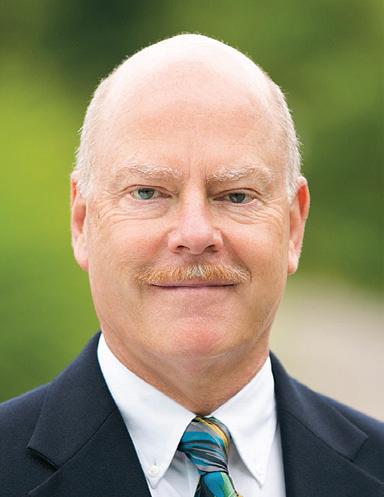
DAY-TO-DAY OPERATION
INSURANCE COMPANY AUDITS
BY KIM SVESKA, R.Ph., Pharm.D., J.D., Foley, Baron, Metzger and Juip, PLLC
Most pharmacists and pharmacy technicians handle questions related to day-to-day operations by consulting professional resources, the internet and colleagues. Most routine day-to-day operational questions do not require a lawyer's expertise, but this depends on the circumstances. A few recent questions that have come up were based on the federal requirement that physicians prescribe controlled substances and other prescriptions electronically starting in January 2023. For example, what about a defiant physician who says, "I'm not going to prescribe electronically– I don't want to and you can't make me," but they don't qualify for any exemptions?
Many lawyers and law firms have agreements with their clients to provide general counsel services. This works where an attorney requests a small retainer fee to be available to the client on an ongoing basis and answers any questions they might have. Our firm handles this by answering questions as needed and billing the client for the time it takes to respond to them monthly.

Pharmacies are the most audited entities in the United States, if not the world. Whether or not a lawyer could help respond to an audit depends on the nature of the audit and what stage the pharmacy is in the audit process. For example, many pharmacies handle an initial audit response without the aid of an attorney and only consult one if there is a negative outcome and a right of appeal exists. Most insurance companies have at least one level of an appeal following an audit finding; it would be a good idea to get a lawyer engaged in responding at the second level.
Not all audits are the same. An inventory reconciliation audit is the most onerous, especially if it looks back six years. Most pharmacies always have a negative finding under those circumstances because of purchasing prescription products through nonstandard sources and subpar tracking of those purchases.
28 MichiganPharmacists.org
— LEGAL INSIGHTS —
LICENSURE INVESTIGATIONS
If the Bureau of Professional Licensing investigates in the pharmacy setting, it is usually disguised as a routine random pharmacy inspection. Most pharmacists and pharmacy technicians handle the initial inspection without the aid of an attorney. If it involves an attorney, it is typically in assisting them to respond within the 30-day time window for corrections related to the inspection. During these types of audits, sometimes the inspector(s) will request copies of prescriptions and drug utilization review information. Of course, that does create additional concerns and certainly points to the fact the inspection was never random or routine. Usually, at that point in time, it is a good idea to engage an attorney who can assist you in handling the situation in the best possible fashion.
RECORDS REQUEST AND/OR SUBPOENA BY A LAWYER
In general, most of these requests are benign and are not directed toward pharmacy activities; they are simply gathering information within a lawsuit regarding prescribed medications. This type of situation would rarely require assistance from a lawyer; however, if it appears that the records request will be targeting the pharmacy in some way, you should reach out to your malpractice insurance carrier and discuss the possibility of a claim sometime in the future. They may suggest engaging an attorney pre-suit to again make sure that the possibility of a claim is handled in the best possible way. Many insurers will allow the pharmacy owner to recommend an attorney.
PHARMACY MALPRACTICE LAWSUIT
In Michigan, it is required before filing a malpractice lawsuit that a Notice of Intent must be filed. Contacting the insurance carrier is essential if the pharmacy receives a Notice of Intent related to a possible pharmacy malpractice claim. Based on their review, it will likely result in the assignment of an attorney to assist in the pre-suit time frame, as well as after a lawsuit is filed – if one is filed. Again, the pharmacy may be able to request a specific attorney, but that does vary amongst the insurers.
NON-MALPRACTICE LAWSUIT
Occasionally, people will file "slip and fall" lawsuits concerning something that happened on the pharmacy premises. These should also be reported to the appropriate insurance carrier as well and they will likely assign an attorney they already know in the area and ask that the attorney handle the case. Requesting a specific attorney for this type of case may also be possible.
THREATENED LAWSUIT
It is possible that an angry patient – for example, one that received a mis-filled prescription – could threaten a lawsuit and request that they receive some type of compensation. These possible claims should also be reported to the pharmacy malpractice insurance carrier. The carrier may suggest engaging an attorney to ensure negotiations are correctly done and the patient signs a release to prevent them from obtaining a settlement and filing a lawsuit anyway because a release was not actually signed off on.
GENERAL BUSINESS NEEDS
Many general business issues occur in a pharmacy's lifespan, including buying or selling the pharmacy, bringing in new partners, starting a pharmacy from scratch, etc., where a lawyer can be helpful. Unfortunately, I have been involved in several situations where a pharmacy partnership breaks up and lawsuits are filed. Still, there was no partnership agreement or other corporate structural documents, so it becomes a "free for all." It is wise to have corporate structural documents, such as partnership agreements, in place to guide the business on an operational basis and hopefully prevent lawsuits from developing.
DEA OR DEPARTMENT OF JUSTICE INVESTIGATIONS
If a Drug Enforcement Administration and/or Department of Justice investigator comes to the pharmacy with a search warrant, it would be essential that the pharmacy owner and anybody potentially "in the crosshairs" regarding the case hire an attorney. Depending on the circumstances, hiring an attorney that understands pharmacy is typically a good choice. Sometimes it may require two attorneys – one that understands pharmacy and one that handles criminal cases.
2023 Apr./May/June | Vol. 61, Issue 2 29
— LEGAL INSIGHTS —
"If a Drug Enforcement Administration and/or Department of Justice investigator comes to the pharmacy with a search warrant, it would be essential that the pharmacy owner and anybody potentially "in the crosshairs" regarding the case hire an attorney."
PATIENT ASSISTANCE PROGRAMS
Patient Assistance Programs (PAP) are valuable resources for many patients. As research advances, more drugs will be developed and approved for disease states with significant time remaining on their patent.
For many patients, these medications can be costly due to patents. It is important to note that patents last 20 years from the date the application was filed and, on average, the drug development process takes about 10 years. Additionally, drug manufacturers receive exclusivity of their newly-approved medication, which may be six months, three years, five years, or seven years, depending on specific factors. Exclusivity may or may not run concurrently with the patent timeline, as patents will expire after 20 years no matter the drug’s approval status.
BY ABIGAIL POORT, 2023 Pharm.D. candidate, University of Toledo

In contrast, exclusivity is granted after approval of a new drug. This results in many medications, specifically brandname ones, being unaffordable for patients. PAP are generally managed by pharmaceutical companies to provide patients with commercial insurance access to some of these higher-cost, exclusive medications. Some benefits of these programs include the potential to improve care in individuals with chronic diseases and increase adherence to medication, which may decrease hospitalizations and prevent additional complications or progression of the individual’s disease state.
In the following table, you will find compiled information, updated Feb. 18, 2023, including specific eligibility requirements, income limits and drugs included, organized by manufacturer. This is not an all-inclusive list.
ORGANIZATION QUALIFICATIONS REQUIREMENTS DRUGS INCLUDED
Lilly Cares Foundation
Must be a permanent, legal resident of the United States, Puerto Rico, or U.S. Virgin Islands.
Must be uninsured or have Medicare Part D and NOT enrolled in Medicaid, Low Income Subsidy, or Veteran Affairs benefits.
Novartis
Reside in the United States or a U.S. territory.
Must have limited or no prescription insurance coverage.
Must be treated by a licensed U.S. health care provider on an outpatient basis.
NovoCare
Must be a U.S. citizen or legal resident.
Must have a total household that is at or below the federal poverty level.
Must have no prescription insurance or Medicare Part D.
May not be enrolled in or qualify for any federal, state, or government program such as Medicaid, Low Income Subsidy, or veterans benefits (patients eligible for Medicaid who choose to deny the benefit must submit proof of denial).
Group 1: Cialis, Cymbalta, Evista, Forteo, Prozac, Symbyax, Zyprexa
Group 2: Baqsimi, Basaglar, Emgality, Humulin, Lyumjey, Reyvow, Trulicity Group 3: Humatrope, Olumiant, Taltz
Group 1: Beovu, Coartem, Entresto, Leqvio, Xiidra
Group 2: Adakveo, Afinitor, Afinitor Dizperz , Cosentyx, Extavia, Feuumoxytol, Fulvestrant, Gilenya, Hycamtin, Ilaris, Jadenu, Jadenu Sprinkle, Kesimpta, Kisqali, Kisqali Femara Co-Pak, Lutathera, Mayzent, Mekinist, Omnitrope Somatropin, Piqray, Pirfenidone, Pluvicto, Promacta, Rydapt, SANDOSTATINLAR DEPOT, Scemblix, Tabrecta, Tafinlar, Tasigna, Tykerb, Vijoice, Votrient, Zarxio, Ziextenzo, Zykadia
30 MichiganPharmacists.org — PROFESSIONAL DEVELOPMENT —
Fiasp, Levemir, Novolog, Novolog Mix 70/30, Ozempic, Rybelsus, Trisiba, Victoza, Xultophy 100/3.6 Number of persons in household Group 1 Income Limit Group 2 Income Limit Group 3 Income Limit 1 $40,770 $54,360 $67,950 2 $54,930 $73,240 $91,550 3 $69,090 $92,120 $115,159 4 $83,250 $111,000 $138,750 Group 1 Medications Number of persons in household 48 Contiguous States and U.S. Territories Alaska Hawaii 1 $54,360 $67,960 $62,520 2 $73,240 $91,560 $84,240 3 $92,120 $115,160 $105,960 4 $111,000 $138,760 $127,680 Group 2 Medications 1 $81,540 $101,940 $93,780 2 $109,860 $137,340 $126,360 3 $138,180 $172,740 $158,940 4 $166,500 $208,140 $191,520 Number of persons in household Income Limit 1 $58,320 2 $78,880 3 $99,440 4 $120,000
ORGANIZATION QUALIFICATIONS REQUIREMENTS
Merck
Must be a U.S. resident.
Must have prescription from a licensed U.S. provider.
Must have no prescription insurance.
Sanofi
Must be a resident of the U.S. or a U.S. territory.
Must be under care of licensed U.S. provider.
Must have no prescription insurance or access to prescribed product or treatment via current insurance.
Johnson & Johnson
Must reside in the U.S. or a U.S. territory.
Must be treated by a U.S.-licensed physician as outpatient.
Must have no insurance.
AbbVie
Must reside in the United States.
Must be treated by a licensed U.S. health care provider on an outpatient basis.
Must have limited or no health insurance.
Amgen
Must have lived in the U.S. or its territories for six months or longer.
Must be uninsured, have insurance plan that excludes medication prescribed or have Medicare part D but meet additional requirements.
DRUGS INCLUDED
Group 1: Belsomra, Delstrigo, Dificid, Emend, Gardasil 9, Isentress, Janumet, Januvia, MMR II, Noxafil, Pifeltro, Pneumovax 23, Recarbrio, Recombivax HB, Stromectol, Vaqta, Varivax, Vaxneuvance, Zepatier, Zerbaxa, Zolinza
Group 2: Ketruda, Prevymis, Verquvo, Welireg, Zinplava
Adacel, Admelog, Apidra, Imovax Rabies Vaccine, Lantus, Lovenox, MenQuadfi, Mozobil, Multaq, Pentacel Diptheria and Tetanus Toxoids and Acellular Pertussis Adsorbed, Inactivated Poliovirus and Haemophilus b Conjugate Vaccine, PriftinSoliqua, Tenivac, Thymoglobulin, Toujeo
Opsumit (macitentan) Tablets
Tracleer (bosentan) Tablets
Uptravi (selexipag) Tablets
Veletri (epoprostenol) Injection
Ventavis (iloprost) Inhalation solution
AeroChamber Plus, Alloderm, Alphagan P, Armour Thyroid, Avycaz, Botox, Canasa, Creon, Crinone, Dalvance, Delzicol, Depakote, Duopa, Durysta, Fetzima, Gelnique, Gengraf, Humira, Imbruvica, Kaletra, Linzess, Lumigan, Lupron Depot, Lupron Depot Ped, Mavyret, Namenda XR, Namzaric, Norvir, Oriahnn, Orilissa, Ozurdex, Pylera, Qulipta, Rectiv, Restasis, Tevolve, Rinvoq, Saphris, Savella, Skyrizi, Strattice, Synthroid, Teflaro, Ubrelvy, Venclexta, Viberzi, Viibryd, Vraylar, Xen Gel Stent
Amovig, Amjevita, Aranesp, Avsola, Blicyto, Corlanor, Enbrel, Evenity, Imlygic, Kanjinti, Kyprolis, Lamakras, MVASI, Neulasta, Neupogen, Nplate, Otezla, Parsabiv, Prolia, Repatha, Riabni, Texspire, Vectibix, Xgeva
2023 Apr./May/June | Vol. 61, Issue 2 31 — PROFESSIONAL DEVELOPMENT —
Number of persons in household Group 1 Group 1 1 $58,320 $72,900 2 $78,880 $98,600 4 $120,000 $150,000 Number of persons in household Income Limit 1 $58,320 2 $78,880 3 $99,440 4 $120,000 Number of persons in household Income Limit 1 $81,540 2 $109,860 3 $138,180 4 $166,500 Number of persons in household Income Limit 1 $87,480 2 $118,320 3 $149,160 4 $180,000 Number of persons in household Income Limit 1 $72,900 2 $98,600 3 $124,300 4 $150,000
Perspectives on a New Ambulatory Care Concentration at Wayne State University
BY HELEN BERLIE, Pharm.D.,
BHS, CDE, BCACP, associate clinical professor, Wayne State University, ambulatory care specialist, Health Centers of Detroit; and CANDICE GARWOOD, Pharm.D., FCCP, BCPS, BCACP, clinical professor, Wayne State University, ambulatory care specialist, Harper University Hospital, Detroit Medical Center
Part of the strategic vision of the Doctor of Pharmacy Program (Pharm.D.) at Wayne State University (WSU) is to advance pharmacy by producing differentiated graduates that are practiceready and prepared to work with diverse populations.1



In turn, the Pharm.D. elective pathways at WSU offer students the ability to differentiate themselves upon graduation and prepare for their future career goals. The program supports this by offering an array of electives and focusing some of these electives into specialized areas of focus, also known as concentrations. The most recent elective concentration approved within our program is the ambulatory care concentration (ACC).2
The ACC joins other WSU pharmacy curricular concentrations, such as research scholars and two graduate certificate programs (business and public health). The development of the ACC enables students to focus on a growing area of pharmacy to assist the profession in filling an unmet need.
Over the last several years, the importance of pharmacotherapy in preventive medicine, patient education, decreasing the number and duration of hospitalizations, and transitions of care have underscored the role of ambulatory care services in healthcare. Ambulatory care pharmacy services are an essential component of any comprehensive healthcare delivery system.3 According to the American Society
of Health-System Pharmacists, ambulatory care pharmacy practice is “...the provision of integrated, accessible healthcare services by pharmacists who are accountable for addressing medication needs, developing sustained partnerships with patients and practicing in the context of family and community. Ambulatory care pharmacists may work in hospitalbased or community-based settings and are involved in the direct care of a diverse patient population”.4 Pharmacists in the ambulatory care setting commonly practice in collaboration with other healthcare professionals. Highlighting the relevance of ambulatory care practice, the Accreditation Council for Pharmacy Education (ACPE) mandated the inclusion of an ambulatory care rotation for all students as part of their Advanced Pharmacy Practice Experiences.5 However, the practice-readiness of recent pharmacy graduates to provide direct patient care is primarily developed after completion of didactic education and during postgraduate training.6
Beyond the ambulatory care setting, there is a growing focus in community pharmacy to provide direct patient care. According to Dr. Julie Akers, clinical associate professor of pharmacotherapy at the Washington State University College of Pharmacy and Pharmaceutical Sciences, the future of pharmacy practice will encompass more direct patient care in all practice
— AMBULATORY CARE —
areas. “More involved direct patient care is the future of pharmacy practice and schools need to ensure that they are graduating practiceready pharmacists who are prepared to move into that role,” Akers said. Thus, to better meet the need for pharmacy graduates to provide direct patient care, pharmacy schools are faced with an opportunity to design targeted curricula that provide practical training in direct patient care activities. Preparing pharmacy graduates for practice in ambulatory care environments can help fill an unmet need. The Michigan Society of Health-System Pharmacists (MSHP) forecasted a growing demand for pharmacists to practice in ambulatory care environments in the state. As a result, MSHP established an ambulatory care committee in 2015 to address statewide status of practice, identify perceived gaps and formulate and prioritize recommendations to address the gaps.8 Since then, ambulatory care practice opportunities have expanded, accelerated by the 2016 establishment of the Michigan Pharmacists Transforming Care and Quality Initiative with Blue Cross Blue Shield of Michigan.9 Today, several Michigan employers are seeking ambulatory care pharmacists. Current job recruitment websites identify multiple ambulatory care pharmacist openings across the state.10 Yet, Michigan has only seven postgraduate PGY2 ambulatory care residency programs.11 While residency training or practice experience is typically listed as a desired qualification in the ambulatory care pharmacist job descriptions, postgraduate training programs alone cannot meet the demand. Priming pharmacy graduates with additional knowledge and skills in ambulatory care can help meet changing practice needs by preparing graduates to be competent in seeking entry-level ambulatory care positions. Further, ambulatory care-focused Pharm.D. curricula will enable graduates to seek postgraduate training and prepare for more advanced roles.
An overview of Wayne State’s ACC curriculum is provided in Figure 1. Pharmacy students can apply during the second year of the program and, if accepted, begin the concentration in the spring/summer of their third year. All students in the concentration are required to complete Medication Therapy Management (MTM) certificate training. Students in

the concentration will dedicate their elective coursework to ambulatory care-designated classes. All electives approved within the ACC must meet prespecified criteria aligned with the Board-Certified Ambulatory Care Pharmacist (BCACP) domains – patient-centered care, translation of evidence and advancement of practice – and make up at least 60% of the course content.12 In the fourth year of the program, each student enrolled in the concentration will complete one ambulatory care rotation and an additional ambulatory care or community clinical rotation. Participation in student organizations with an emphasis on ambulatory care is also encouraged.
In addition to meeting the needs of our changing healthcare landscape and the profession of pharmacy, student perspectives and preferences are also an essential part of the process when considering the importance of a career in ambulatory care. Furthermore, it can benefit current pharmacy students to understand the relevance of ambulatory care practice and how this may fit their professional identity formation. In the section below, trainees with a vested interest in ambulatory care provide their perspectives and discuss why they are pursuing a career in the field.

P4 Student - Monica Aziz
“Even before pharmacy school, my experience in community pharmacy piqued my interest in direct patient care. During my APPE ambulatory care experience, I observed the meaningful relationships the pharmacist was able to build with both the patients and various healthcare providers. Through this experience, I was also able to participate in developing my own patient relationships. My role in the ambulatory care clinic included working one-on-one with patients to manage chronic disease states. I developed pharmacologic and non-pharmacologic regimens and counseled patients on medication compliance by addressing concerns like medication administration and adverse effects. My ambulatory care experience inspired me to pursue a residency with an ambulatory care focus so that, upon graduation, I am able to practice at the top of my license, providing excellent patient care in an interprofessional setting.”
2023 Apr./May/June | Vol. 61, Issue 2 33
“In addition to meeting the needs of our changing healthcare landscape and the profession of pharmacy, student perspectives and preferences are also an essential part of the process when considering the importance of a career in ambulatory care. Furthermore, it can benefit current pharmacy students to understand the relevance of ambulatory care practice and how this may fit their professional identity formation. In the section below, trainees with a vested interest in ambulatory care provide their perspectives and discuss why they are pursuing a career in the field.”
— AMBULATORY CARE —
Figure 1. WSU Ambulatory Care Concentration Overview
PGY1 Resident - Stefania Cian
“Throughout my pharmacy journey I have been able to collaborate with a variety of healthcare professionals in various ambulatory care settings. In the ambulatory care setting, pharmacists are fortunate to have dedicated time with patients and work independently through collaborative practice agreements. This enables us to optimize patient care, improve patient outcomes and make positive contributions to public health. My experiences in ambulatory care have reinforced the importance of obtaining advanced pharmacy practice training and have led me to pursue a PGY2 residency in ambulatory care. I plan to dedicate my career to addressing the gaps in care for patients with chronic diseases and incorporating my passions of direct patient care while collaborating with other healthcare professionals. Overall, I believe that ambulatory care pharmacists are in a prime position to bridge gaps in care and positively contribute to the advancement of healthcare.”
PGY2 Ambulatory Care Resident - Rachel Kuo
“I have found that ambulatory care offers an opportunity to make clinically meaningful medication interventions, ensure these interventions are put to practice when working face-to-face with patients, and optimize therapy through delegated prescriptive authority. Many of the patients I see may not fully understand why certain medication changes are made, and I find that patients appreciate being able to hear a pharmacist’s expertise in drug mechanisms and safety. Some patients enter the appointment with limited knowledge of their condition(s) or medication(s), and they leave the appointment with a crash course of the pathophysiology, mechanisms of their medications, how to manage missed doses, and all the practical aspects of taking their medications. I am able to build long-term relationships through continuous follow-up. In collaboration with other healthcare professionals, my interventions as a pharmacist can optimize medication therapy management and help overcome therapeutic inertia. Overall, my experiences as a PGY2 are rewarding and highlight the impact pharmacists can have when engaging in patient-centered care.”
Conclusion
Ambulatory care pharmacy practice is growing in Michigan and nationally. To our knowledge, this is the first concentration in ambulatory care in the state of Michigan. The ACC at WSU will provide focused training in and increased exposure to ambulatory care pharmacy practice. The ACC is a distinctive program designed to enhance professional education and prepare graduates for direct patient care and a career in the field. Ultimately, the ACC may address an unmet need for pharmacists practicing in ambulatory care with the goal of improving patient health in the state of Michigan.
References:
1. Eugene Applebaum College of Pharmacy and Health Sciences. Vision, mission and strategic plan. https://cphs.wayne.edu/pharmd/mission.php. Accessed March 16, 2023.


2. Eugene Applebaum College of Pharmacy and Health Sciences. Ambulatory Care Concentration. https://cphs.wayne.edu/pharmd/acc.php. Accessed March 16, 2023.
3. American Society of Health-System Pharmacists. ASHP Guidelines: minimum standard for ambulatory care pharmacy practice. Am J Health-Syst Pharm. 2015; 72:1221–36.
4. American Society of Health-System Pharmacists. FAQ: Basics of Ambulatory Care Pharmacy Practice. 2019. https://www.ashp.org/-/media/assets/pharmacy-practice/ resource-centers/ambulatory-care/basics-of-ambulatory-care-pharmacy-practice. pdf. Accessed March 16, 2023.
5. Accreditation Council for Pharmacy Education. Accreditation Standards and Guidelines for the Professional Program in Pharmacy Leading to the Doctor of Pharmacy Degree. Chicago, IL. Adopted January 15, 2006. Effective July 1; 2007.
6. Murphy JE. Practice-readiness of US pharmacy graduates to provide direct patient care. Pharmacotherapy: The Journal of Human Pharmacology and Drug Therapy 2015;35(12):1091-5.
7. American Association of Colleges of Pharmacy. The Future of Community Pharmacy: Direct Patient Care. https://www.aacp.org/article/future-community-pharmacy-directpatient-care. Accessed March 16, 2023.
8. Smith AL, Garwood CL, Bailey T, Decator D, Elder J, Green A, Kostoff D, Lucarotti RL, MacDonald N, Malburg D, Ottney A, Remington T, Shuster J. State Affiliate Initiative to Advance Ambulatory Care Practice. Am J Health Syst Pharm. 2016;73(23):1909-14.
9. Michigan Summary of Care Report Michigan Pharmacists Transforming Care and Quality Presented by 5th Edition. https://www.aacp.org/sites/default/files/2022-06/ michigan-white-paper-2016.pdf. Accessed March 10, 2023.
10. Indeed.com. https://www.indeed.com/q-Ambulatory-Pharmacist-l-Michigan-jobs Accessed March 10, 2023.
11. ASHP Residency Directory. https://www.ashp.org/professional-development/ residency-information/residency-directory?loginreturnUrl=SSOCheckOnly. Accessed March 10, 2023.
12. Board of Pharmaceutical Specialties. Ambulatory Care Pharmacy. https://www. bpsweb.org/bps-specialties/ambulatory-care/#1517746856979-c1fe2e048ffb1517779729021. Accessed March 16, 2023.
34 MichiganPharmacists.org
— AMBULATORY CARE —
“Ambulatory care pharmacy practice is growing in Michigan and nationally. To our knowledge, this is the first concentration in ambulatory care in the state of Michigan. The ACC at WSU will provide focused training in and increased exposure to ambulatory care pharmacy practice. The ACC is a distinctive program designed to enhance professional education and prepare graduates for direct patient care and a career in the field.”
ADAPTING TO CHANGE in the Pharmacy World

Greek philosopher Heraclitus of Ephesus said “the only constant in life is change.” Yet when change happens, we are often surprised. Many people are resistant to change, but not all change is bad. Think about changes in society, technology, communications and how most changes are very positive and help us to be more effective and efficient. I think most readers of the Michigan Pharmacist would agree that change is constant in the pharmacy world as well.
Individually, it is considered good practice to obtain an individual professional liability policy to protect your personal assets in the event litigation is brought against you. The coverage is quite affordable, usually around $150 annually for pharmacists and $99 annually for technicians. You can add the Consulting Services Endorsement for $25 to cover non-medical activities.
BY RON DEVERS, CIC, CPIA, director of operations, PSI Insurance Agency

Look at the changes in the pharmacy professional’s scope of practice. Look at the change in pharmacy technician responsibilities, especially as it relates to licensure and involvement in patient care. Who would have thought years ago that pharmacists could fill prescriptions via email, be allowed to administer vaccines, or prescribe birth control? Pharmacy professionals continue to prove that they are on the front line in taking care of patients and community health. From an insurance standpoint, these changes can present some challenges. As pharmacists and technicians get more added to their scope of practice, it can increase your liability exposure. The first concern is protecting your practice and making sure that your insurance program covers things like immunizations and compounding. Generally speaking, as long as you operate within the scope of your license and are doing things as outlined by Michigan law, your practice is protected.
Increasingly, healthcare professionals are participating in educational and consulting activities in addition to direct patient care. These activities carry unique legal risks that can be covered under your professional liability policy by adding the Consulting Services Endorsement. Non-medical activities include:
• Medical administration
• Training
• Legal consultation
• Speaking at seminars
• Teaching or acting as an expert witness
• Rendering advice in your area of specialization Call PSI Insurance Agency if you’d like to discuss this important matter further. It’s our business to protect your business.
2023 Apr./May/June | Vol. 61, Issue 2 35 — COVER YOUR ASSETS —
DISCOUNT/CASH CARDS ARE DISRUPTORS IN THE INDUSTRY
On Feb. 25, 2023, PAAS National had the privilege of participating in a panel discussion entitled Marketplace Prescription Dynamics Sure to Shape Your Business Strategies at NCPA Multiple Locations Conference. While traversing several different topics one of the core issues important to community pharmacies is discount/cash cards.
BY TRENTON THIEDE, Pharm.D., MBA, president, PAAS National®, expert third-party audit assistance and FWA/HIPAA compliance
IQVIA published a white paper entitled Pharmacy Discount Card Utilization and Impact1 in August 2022 with several interesting findings. Among them, discount card utilization has grown to 5.4 percent of all pharmacy adjudications in 2021, a 63 percent increase over 2017 — of which “Not So GoodRx” now represents 46 percent. Only 9 percent of discount card transactions are for branded products. For Medicare patients, nearly 1 in 5 (19 percent) used a discount card. Commercial patients were 12 percent, but that doubled to 24 percent for those with an observed deductible. Cash paying patients represented 56 percent of all patients and 52 percent of transactions.
While the discount card growth has been remarkable, what makes them disruptors in the industry has been their impact on the traditional pharmacy benefit manager (PBM) model. Discount cards have been effective at undermining the perceived benefit that PBMs are supposed to provide (for example why is GoodRx able to offer a better price on my prescriptions than my insurance). Additionally, patients’ out-of-pocket costs are typically not captured when they use discount cards unless a patient is going to submit claims on their own (in addition to gaps in adherence metrics and other quality measures). In response, Express Scripts announced2 a partnership with GoodRx to include a “lesser of” logic when processing prescription claims through their Price Assure program. Not to be outdone, OptumRx launched Price Edge3 which will review direct-to-consumer prescription drug prices and offer members the lowest available price. Comically, OptumRx said they currently offer the best price to their members about 90 percent of the time, meaning 10 percent of the time patients are getting a raw deal. Both of these programs are automatically including these drug purchases into member’s deductibles going forward.
Pharmacies know4 that discount cards are really just another form of spread pricing, benefiting the discount card provider and PBM. GoodRx reports that it earns 15 percent of the patient’s total retail prescription cost, and that doesn’t include a fee for the PBM processor. Interestingly, GoodRx had disclosed that Kroger had accounted for only 5 percent of participating
pharmacies, but nearly 25 percent of prescription transaction revenue. How could it have been that high? As a chain, Kroger was more likely dutiful in their utilization and/or promotion of GoodRx for patients. Most independents despise GoodRx and will create workarounds to avoid utilizing the card (for example with aggressive cash pricing or price-matching). Pharmacies should always be careful not to jeopardize their usual and customary. With the integration from these new programs by the PBMs, bypassing discount cards will likely no longer be an option for insured patients. The impact on BER, GER and even DIR fees for 2023, and beyond, are not clear.
Speaking of jeopardizing your usual and customary pricing, Amazon’s RxPass5 should be a flop. If you haven’t heard or read about it, Amazon is offering their Prime members “eligible medications for one flat, low monthly fee of $5, and have them delivered free of charge”. Patients with Medicare, Medicaid, or located in one of the seven states they exclude are not eligible to participate. The broader question is how long it will take the DOJ and HHS-OIG to enforce the U&C issue that has already played out with Walgreens (and many others). PAAS previously illuminated the $60 million settlement with the Prescription Savings Club in the March 2019 PAAS Newsline: AVOID “Discount Clubs” for Cash Patients6. That same DOJ announcement7 also discussed the infamous Insulin Pen Box Settlement for $200 million. Amazon clearly missed this settlement, as the PillPack subsidiary paid a $5.79 million settlement8 in May 2022 for the same insulin pen dispensing practices.
PAAS National® is committed to serving community pharmacies and helping keep hard-earned money where it belongs. Contact us today at (608) 873-1342 or info@paasnational.com to see why membership might be right for you.
Copyright © 2023 PAAS National, LLC. Unauthorized use or distribution prohibited. All use subject to terms at https://paasnational.com/terms-of-use/ References available upon request
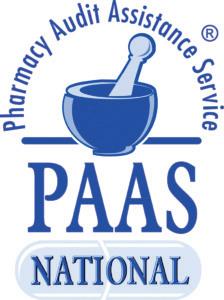
36 MichiganPharmacists.org
— PAAS NATIONAL —

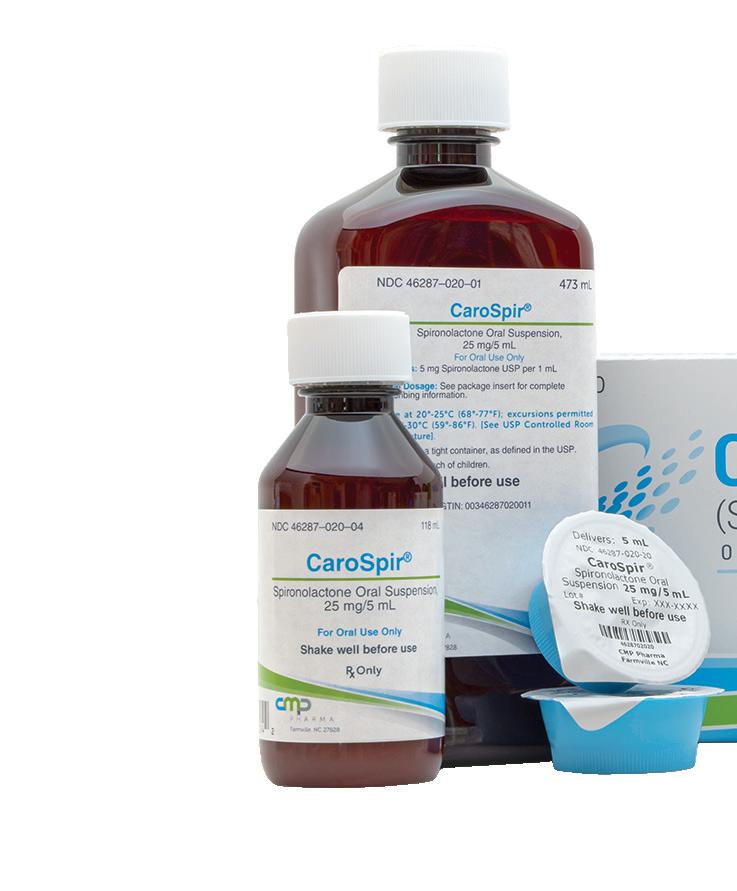

1 mg/mL ( Amlodipine) Oral Solution
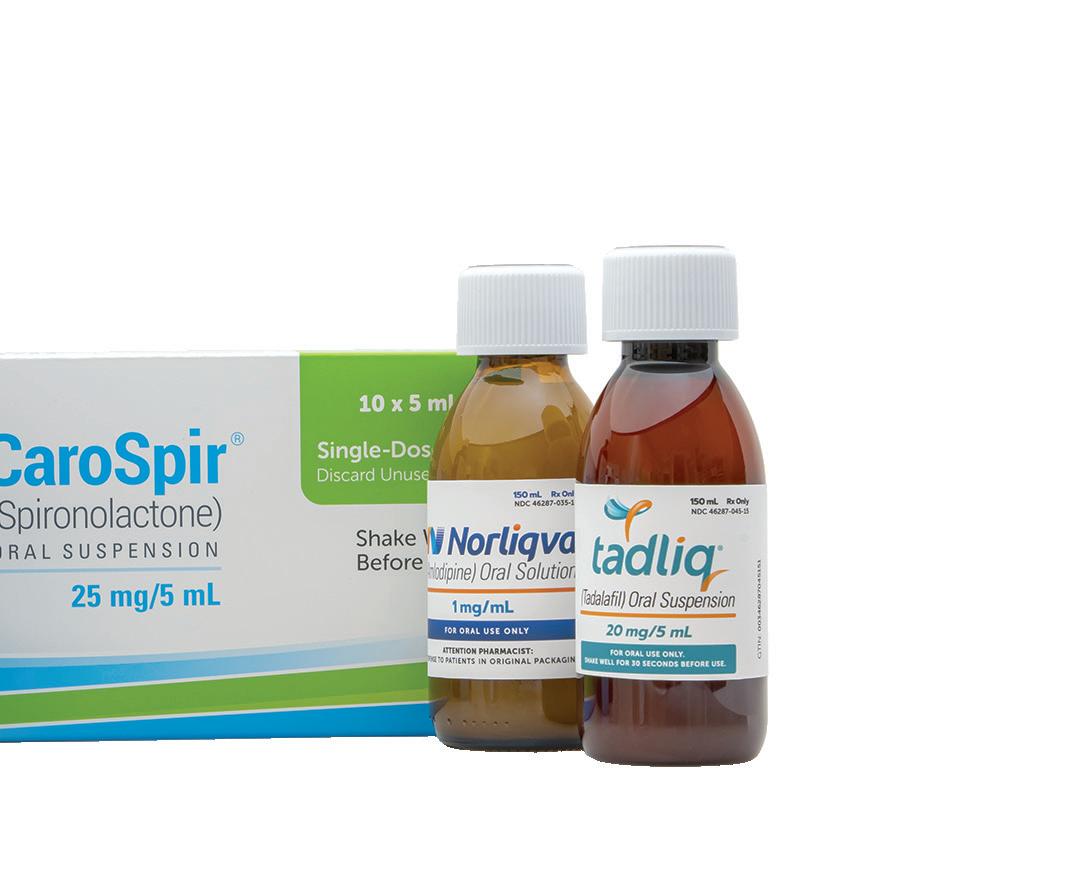
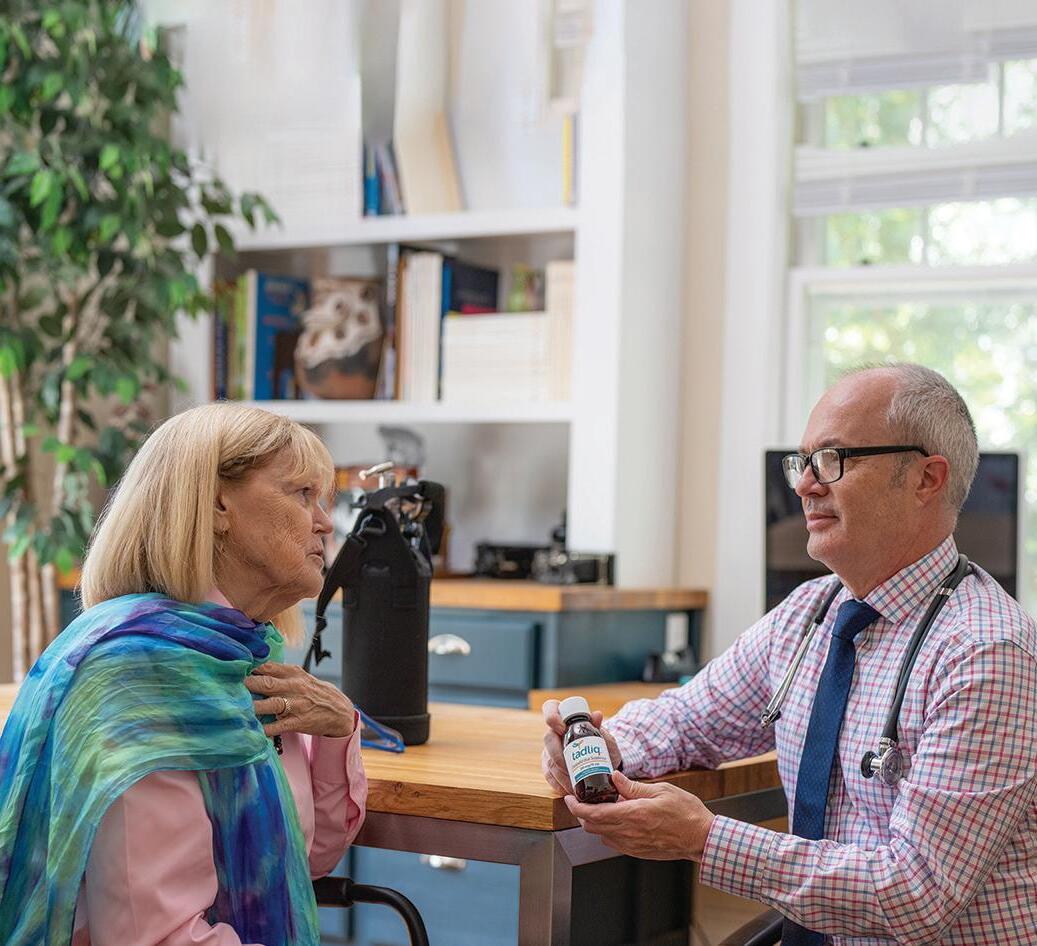
2022 Oct./Nov./Dec. | Vol. 60, Issue 4 39

40 MichiganPharmacists.org








































































 State University
State University


 BY LISA N. POWERS, CAE, CTA, director of education and events, Michigan Pharmacists Association
BY LISA N. POWERS, CAE, CTA, director of education and events, Michigan Pharmacists Association














































 BY THOMAS BURNS, Pharm.D., PGY1
BY THOMAS BURNS, Pharm.D., PGY1







































